#like even if the movie is silly from modern perspective the music is so cool
Note
ok catie first of all i am crying at the image in my head of nosferatu live. that is actually the Greatest Thing i've ever heard. i'm so jealous but now i have a new bucketlist item. and also. its a wonderful life was my other oldest too. and now im gonna go cry. ok bye
That was truly the Movie Experience of All Time, seriously, like it was just so random but perfect, and so incredibly funny
Basically, there's this historic theater near me that does old movies. They also happen to have an organ, well okay, that's cool I guess! And then they announce "Nosferatu with live organ accompaniment" I HAVE TO GO! Not to wax poetic but it was very sweet to me because I'm pretty sure they mentioned that this was the first time an event like that was completely sold out? It's just very sweet to imagine all those other people reading about it and being like me and going "Nosferatu live organ?? I gotta see this!" The organ in question:
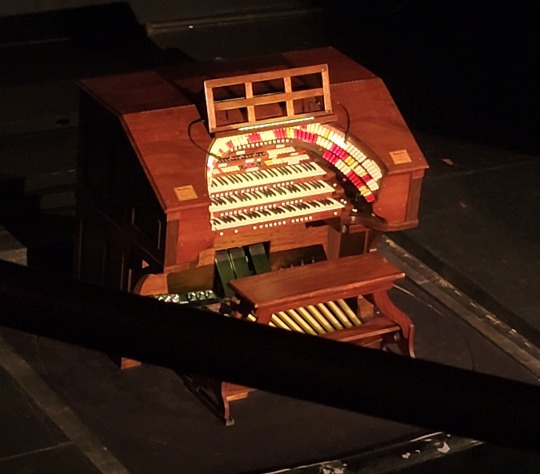
#its a wonderful life made me cry so bad 😭😭😭😭🥺🥺🥺🥺#but nosferatu as i said#im sure it was scary back in the 20s when horror movies werent a thing yet#but from the modern perspective it was so funny and campy???#and also we could not figure out the main character's name#it was Hutter right? but with the font they used it looked like his name was Butter#i just couldnt stop crying with laughter when we kept calling him Buttrr#i think the funniest part is when they sped scenes up to show that Nosferatu has weird powers#but its just so incredibly funny 😭😭#but the organ!!!!!! sooooooo sick#and also omg!#they had this local artist who was selling posters of Nosferatu that he drew#very cool#but we bought one and got the organist to sign it!!#it was so funny how many people wanted his signature#he was just some younger guy and suddenly everyone is like: please sign this poster#so now i have that artifact i guess!!#but yeah definitely reccomend one day seeing a silent film with live accompaniment#its very sick#like even if the movie is silly from modern perspective the music is so cool#catie.asks.#catie.rambling.txt
6 notes
·
View notes
Text
After finally seeing sing 2 after years of waiting, I’ve got long, spoilery thoughts about it!! Here’s what I managed to gather so far.
MASSIVE SPOILER WARNING BELOW
- All the visuals improved. The textures, the facial expressions, all are amazing. Those shots of realistic foliage are basically Illumination flexing, lmao. Also it was so hard to sit still and pay attention to details because it was so easy to get lost in the music.
- So basically the plot wouldn’t have happened if Buster could take criticism and light praise lol
- No explanation to where Eddie went. I like to think he got an internship abroad to find a purpose in his life. Maybe Nana is portrayed as the new Moon Theater’s patron, if not owner, but it feels like her roles were originally meant for Eddie.
- I will say that the pacing in the first half is a little weird. I feel like there were a few important moments of character development that happened offscreen, especially between the old and new character interactions.
- That said, I loved that first little hint that Porscha isn’t happy with her dad’s treatment when we see a brief crestfallen look when he leaves. Consider how betrayed she must have felt, thinking her father would console her after getting “fired.” Instead he makes it all about him and has these total strangers handle her instead of himself. I can guarantee you that, offscreen, Porscha forgot about getting “fired” and now just cried about how little her Stage Dad cared for her.
- Anyway I love Porscha, even if I didn’t vibe with her at first. She only slips into her mean spoiled princess act when she doesn’t get way, but outside of that, she acts more like Elle Woods mixed with Charlotte from the Princess and The Frog.
- I feel like the upbeat nature of A Sky Full of Stars didn’t really fit the play’s war scene. It should’ve been Imagine Dragons’ Radioactive, especially given that the live version of that song contains a crescendo drum number that the movie incorporated. Although if Johnny needed a fast-paced song to dance to, maybe a hip-hop song would’ve done the job too.
- Ryan seems like a chill guy. Cool tiger. I want him and Johnny to hang out.
- I love Nooshy getting especially exited at the prospect of committing crimes. And the way she initially thought Johnny was asking her out on a date was priceless. Headcanon: lesbian….
- More on Nooshy, she acts a more childish than I originally assumed, so I really don’t know how old she is… I still think she’s in her early 20’s, and just probably acts immature. I want to know her past, especially since it’s obvious she likes to skirt the law…
- My gosh, I love that Gunter is the author of the screenplay, even though Buster had to spend effort helping him form it into a slightly more coherent plot. He’s got a creative mind and I’m proud of him, even if he’s indecisive. (He and my Christine have potential to clash. The silly storyteller vs the “serious” one.)
- I actually kinda dig that the in-universe play for Alice in Wonderland takes place in modern times, with a modern-day Alice in high school going into Wonderland.
- Alfonso must’ve somehow seen Meena before, and practiced that pickup line for her. Smooth.
- I thought Darius was gonna be enough of a jerk to have Alfonso replace him at the last minute, but the yak’s a competent actor and not a terrible person outside of his annoying pride. I have a feeling that might’ve been on the original draft of the script? But Meena imagining her crush on Darius’ place so she would feel comfortable acting romantic with an actor she isn’t into is pretty poignant from an acting perspective.
- Suki was surprisingly good. I didn’t expect her to join the gang.
- The cat though? He’s basically LeFou as a feline, which I’m pretty sure was completely intentional. Definitely a gay simp.
- The kids in my theater CLAPPED and CHEERED when Big Daddy came back. I didn’t know he was popular lol
- I don’t even have to change the script too much to make it fit the Ash Moon AU. Ash acts very close to Buster, beaming at him, and hugging him tightly at the beginning. It’s *adorable*. Imagine Porscha feeling even more inspired to stand up to her dad after seeing what real affection between father and daughter looks like, despite not even being related by blood.
128 notes
·
View notes
Note
Your last post was great food for thought. How would you have written Jack off the show? Personally I think they got the when wrong. Should have got them married end of s3, then written him off going to the Northern Territory and not coming back...
Thanks, Anon!
I’m a bit on the fence about Jack to begin with. On one hand, I agree with you completely: they should have been married before the end of S3, and then Jack’s decision to fight in S4 (after the death of his old pal Doug) would have been huge. They built up this “oooh, he could diiiieee~” narrative, after all. Seeing it come to its (arguably natural) conclusion would be acceptable.
On the other hand, there was something kind of nice about Jack dying when it wasn’t expected. If nothing else drove home that life as a Mountie was not this picturesque landscape of loveliness, that did. Oh, you mean he could die...while just training some men? Doing something in a position that multiple people said he should be honored to be considered for? Oh my!
It was still too contrived for my taste, though. It’s one thing to kill him off in a time of relative peace when he’s just minding his own business, but it’s something else to kill him off-screen and...after making him talk about how safe the job was (which it clearly wouldn’t be, as mentioned before in this series*). Talk about tonal shifts! AJ went to prison, and then there was this weird birthday thing that most of the viewers didn’t care about (where we pretended like Bill’s life wasn’t in mortal danger just days or weeks earlier), and right at the party gets into full swing this just haaaappens to be the moment a Mountie comes into town to tell Elizabeth that her husband died. And of course she’s standing conveniently Right There. Oh, and also, he definitely died a hero, not like a regular guy. How could she live with herself if he died like a regular guy? (/sarcasm, if you couldn’t tell.)
*I might actually be thinking of the When Calls the Heart movie where Edward talks about nearly dying during his own training.
A more convincing and arguably terrible (with positive connotations) way to write Jack’s death off-screen would be to place Bill outside or in the jailhouse when the Mountie comes riding in. He’s still recovering from literally almost dying (a pretty big deal, considering his age) and now he’s just found out Jack has died in some contrived bullshit manner...and it’s his duty to go with this guy and tell Elizabeth, because Bill isn’t the sort of character to shirk duty (neither career nor personal). Elizabeth is family now, after all.
It would at least do something to cement relationships and connections in this show before the actual funeral/grieving episode. Also, seeing Bill’s initial immediate reaction before he clams up and follows protocol he’s been taught from a young adult onward—that’d be delicious character stuff when he has his discussion with Abigail later.
Ideally, though, I’d probably do something more along the lines you’ve suggested (earlier marriage, more expected death). It’s just, by the time they’d decided to actually go through with killing Jack, I feel like it was too late to Take It Slow. If I were in that position, stuck in S5 and having to kill Jack off by the end (10 measly episodes, by the way), I’d do the following:
Jack gets reassigned entirely to train new recruits and there is some kind of set time frame for this. One year, two years: something like that.
Elizabeth and Jack have a rushed wedding that’s not visually impressive but sweet in other ways that have a big impact on the characters. Forgive my language here, but fuck the modern traditions the audience thinks they want (that weren’t even around during this time frame in many cases)! I’d have given them a truly romantic wedding in the church with recognizable faces in the pews and maybe a potluck picnic lunch afterward.
Logically this only happens if the characters worry that it isn’t something they can do later, right? It’s not that he worries he’ll die, but it’s the reality they live in that something could happen to him, and it’s better to be safe than sorry.
Also, Elizabeth won’t want to wait another year (if we say his placement is for at least that long), so it’s not hard to imagine her insisting on doing it immediately.
One final aside, I think this also gives Elizabeth the excuse to remain a schoolteacher in Hope Valley with the idea being that she can spend her summer with Jack (when she’s not teaching)—something she can’t do if they’re not married. At least, not without scandal.
Their ‘honeymoon’ is something they put on hold but probably a place they both wanted to go that’s not completely out of left field (get my joke?) and meaningful to both of them. (This is set-up for Elizabeth eventually going there alone for a letting-go type of scene when it would feel good/appropriate to see.)
They spend the week or two before he has to leave together, and during this time they discuss their future more seriously. Make it mostly the kinds of things that will feel bad when looked back upon after knowing of Jack’s death, but which still ring of some kind of ‘hope for the future’ at the time. S5 had a lot of bullshit in it, not all of which was bad, but the ‘dreams’ were too focused on tangible sorts of things and not the dreams of a couple madly in love who want to be together forever.
The house is kind of silly scope-wise. If they’re dreaming about it, a line from Elizabeth to Abigail (or Clara, or anyone) that Jack wants to do it but she knows it’s not feasible on his income would make it seem like sweet dreaming.
This would be a good time for them to discuss where they want to honeymoon when Jack gets some time off and they can manage it financially, too.
While Jack is gone, Elizabeth reads some of his letters to Abigail. Maybe there could be some cute/saucy bits where she says “I’ll skip the next few paragraphs” or whatever, but the idea here is that Jack has arrived to his destination, is doing well, and Elizabeth is not particularly worried about him.
IF POSSIBLE, scenes of Jack bonding with these green bean boys. Young, largely untrained, idealistic... Man, we know Bill did a lot of teaching and stuff like that at one point in his career, too, so this could be a nice segue into Jack starting down a similar path!
Also it cements his relationship with these men and shows not only that he DOES care about them, but WHY.
If this is NOT possible, at least allude to it in his letters. Mention specific names so that the audience feels a connection, however small.
Also if possible, show Jack’s death, or at least show him making the decision to risk his life for these young men he cares about.
If this isn’t possible: show a scene in the cafe where a patron is reading a newspaper with the date of Jack’s death on it (preferably not a character who had any issues with Jack personally), and Elizabeth is reading Jack’s latest letter to Abigail. It’s not quite as good but I think it would get the point across.
Because Hope Valley isn’t really modern enough for addresses, Bill gets the news first. He goes with the Mountie to speak to Elizabeth. This doesn’t give us tonal whiplash from hell, but maybe occurs during a quieter/less busy time.
Also, there is NO Abigail in this scene. She’ll get her time and I feel like her being a leech on Elizabeth’s character was a huge mistake. Let Elizabeth bond with other people!!!!
We could also really use the insight into Bill’s character and how he reacts “in the moment”—particularly compared to how he acts later. Him keeping his cool (for the most part) and then breaking down in the quiet of his own home/at his desk in the jail (or keeping it together until his conversation with Abigail) would do wonders for his character.
The funeral isn’t shown at length. No speeches. (I’m sorry, I don’t care for those and I don’t think Elizabeth would remember them anyway. They’d just be this massive blur.) She reflects on a hazy view of the casket from her own perspective, and maybe I’d add an iconic scene of the horse walking into the mist with the boots in the saddle facing the wrong way.
You know, the kind of scene that isn’t lovely or anything, but it still feels haunting. Especially if that horse is Definitely Sergeant.
Elizabeth revisiting the grave (as she did in the final episode) is quiet. No music. Just her in the silence walking over to the grave and kneeling in front of it because that’s what it’s like and I feel as if that sort of deeply personal scene would resonate with a lot of viewers.
I don’t deny that the original scene was lovely but that’s the issue: it shouldn’t be #aesthetic-based because that’s completely unrelatable. Most of us look mediocre at best when we visit a gravesite.
I also think there should be parallel Elizabeth-visiting-Jack’s-grave scenes in later seasons/episodes to show progress, and rather than going on the anniversary of his death maybe she goes on his birthday (and/or other special days) instead to celebrate his life. These scenes are always quiet and always gentle, and if there is music at all it’s just barely there.
I could also really go for her running into someone else there who is visiting a grave if there was time for it, just for a conversation.
I’m also REALLY uncertain about the gravesite they put him in in the actual show, just because I’m not sure Jack’s wife couldn’t pick where he was buried. I feel like for these characters, if Jack wanted to be buried anywhere, it would be near his father or in Hope Valley’s own cemetery (which isn’t shown after S1, but we know is there).
I’d go with Hope Valley for the #aesthetic if nothing else. Then Elizabeth can visit whenever she wants and we could watch her visits drop off over the course of a season or two.
Also then her running into someone else should be her running into Florence visiting Paul’s grave. She doesn’t get much in the way of sweet dialogue so this would be wonderful.
I chose Florence specifically because she doesn’t seem ready to move on and it’s been a long time, and maybe I’d even appreciate a comment along those lines by her: that she doesn’t feel the need to remarry/etc etc. Having Abigail (who did move on) and Florence then to give us both sides of the spectrum...feels good.
Then in later seasons/episodes, Elizabeth could run into people at the grave/around the cemetery who are there specifically to see Jack.
Bill leaving flowers/just standing there quietly.
Abigail coming to talk to him and keep him updated about all the really little things (but never the big things because those are for Elizabeth to tell). Maybe more of a stop-off after visiting the graves of Noah and Peter.
I don’t feel Nathan needs any sort of connection to Jack, but I think just the idea of Jack’s death would be enough to make someone like Nathan think twice. What kind of man was he? What did he die for? How well did he love this town? Will I ever fill the shoes he left? I could see him going and just thinking about those things.
It’s not a masterpiece and perhaps not even possible due to timing (the episode limit really messes with good plotline ideas), but I like the ideas in concept.
3 notes
·
View notes
Text
Overall thoughts on Les Mis BBC
I decided, after all those summaries I made, to write what I hope can be a more coherent opinion on what I thought of the adaptation as a whole. I wanted to make sure to state that my critical reactions weren’t for entertainment purposes only or exaggerated for the fun of it but based on real concerns I’ll expand in this post. This is like the “serious companion”, if you will.
I don’t know if anyone cares about it at this point, but I feel that even though my summaries helped me go through the immediate frustrations in a (mostly) lighthearted way, it’s the distance from having watched it all what gave me a little bit more clarity to order my thoughts.
I’ve established my opinion isn’t worth a damn, I’m not smart or knowledgeable enough for this fandom and, needless to say, these are all my personal opinions, take them with a grain of salt or a bathtub of it. I’m a worthless nobody and my words have no value, but the internet is still (sort of) free, so here I go.
Introduction: the initial news, Andrew Davies & the PR mess
BBC announced the adaptations of 2 media phenomenons which started as books that I love so much I’m considering tattoos of both. And, for both of them, my main concerns were on the person adapting the script.
On the one hand, there’s His Dark Materials, a book series that made me the person I am today, pretty much. One of the directors is none other than Tom Hooper (what are the odds) and the script adaptation was in the hands of Jack Thorne. Cursed Child Jack Thorne. Yeah, not thrilled about that.
Surprisingly enough, His Dark Materials was given a projection of 3 possible seasons, rather than just one, the 3rd hasn’t been yet confirmed but the fact that the script was made thinking on one season per major book on the series, and that each season has 8 episodes planned, at least gives me a bit of hope, even if the person adapting it isn’t in my favorites list.
Les Mis, on the other hand, went to the hands of Andrew Davies, another person I don’t trust.
I’m one of those folk who was never too fond of the ‘95 version of Pride and Prejudice, mainly because of how Darcy was made into a sort of sex symbol, where his flaws were seen as “attractive marks of broody character” rather than vulnerability and with gratuitous sexualizing fanservice. I know a lot of people love it for that and that’s cool, you do you, but it’s not for me.
Then, when he adapted War and Peace, he talked about adding more sex to it and had the Kuragin siblings shown explicitly sleeping together from the get-go in episode 1 and that’s when I stopped watching (there were other things I didn’t like but that one was my limit).
To make matters worse, it made me weary that Les Mis was getting an overall amount of only 6 episodes whereas HDM was getting a potential 24-ish. That was an odd choice.
So, as you can guess, I knew coming in that Davies writing the script, a script with a limited time-frame for the story, was a huge risk.
But, on the other hand, as the cast was announced, I got excited. Especially for people like Archie Madekwe, Turlough Convery, Erin Kellyman and some famous actors like David Oyelowo. Their filming logs on social media, how nice they all were and how much fun they had filming made me happy. I felt that maybe these great folks could turn around whatever the scrip had to disappoint me.
But then came all the PR stuff.
The more I read Davies & co. talking about the show, the less hope I had for it. Talking very badly about the musical and the 2012 movie, calling female characters “not complicated”, insulting Cosette, saying that Javert’s lack of explicit heterosexual sex in the brick was reason enough to push a homosexual narrative centered on an unhealthy behavior, patting themselves on the back for having a diverse cast as if no other adaptation of Les Mis had ever done it before...even their talks about Fantine’s make up made me weary. And, let’s not forget their ridiculous insistence on not having songs.
By the time the show premiered, my hopes had dwindled. The excitement I had upon knowing there would be another Les Mis adaptation so soon, a BBC one at that, and with a cast I had hopes for, was blurred by all the nonsense of PR and I was more afraid than hopeful.
In the end, after having watched it completely, and as you can see for my summaries, I was heavily disappointed. I’ll try to list some of my biggest concerns, in no particular order.
I can’t be super extensive about it, because there are a lot of points to go over, but there are a lot of amazing opinion pieces out there about specific issues, so you don’t need me for that.
Anyway, let’s delve into some of my biggest problems with BBC Les Mis.
Problem #1: The portrayal of femininity
Solely by the fact that Davies stated that women on Les Mis “are not terribly complicated” you know that things are not going to go all too well on that front.
I’m going to pick 3 characters to showcase how badly women were portrayed in this: Fantine, Cosette and Éponine. I’ll leave other characters for another section.
1. Fantine
I’ve talked about Fantine before, upon receiving some questions on my summaries, but I’ll try to explain it all in a more understandable way.
The lens in which Fantine was seen was sexist from the get-go. The way in which the story was framed made the audience complicit in the choices she was making, choices that were negatively regarded by the narrative perspective alone. Her “fall to disgrace” was framed as her own decisions being incorrect, silly mistakes that were easily avoidable, and never regarded as the result of living in a society that was unable to contain her and see her as a valid human being. But we’ll get to that when we talk about the politics (or lack thereof) on this show.
Like I said in my response before, the way in which Fantine is portrayed, even in the musical itself, varies greatly performance to performance. Patti LuPone performing I Dreamed a Dream after Fantine gets dismissed isn’t like Anne Hathaway performing it after she has become a prostitute and neither carry the same implications as Allison Blackwell in the Liesl Tommy’s Dallas modern production, influenced by her experience in apartheid South Africa.
Still, the key element to developing Fantine’s portrayal, when it comes to sexism and the showcasing of her environment, has two layers: the actual oppression showcased in the source material and the contemporary interpretation or lens in which an adaptation will view it.
In this version, Fantine’s character was toned down in her attitude. She was less reactive than in the brick, a lot more passive, a lot more of a tragic figure, which paired up with the fact that this adaptation covered her entire “fall to ruin”, from meeting Tholomyès onward, made her a victim of everything that happened to her.
A victim of her own bad decisions, though, not of a social context that was failing her.
But the worst part is in how the focus of the show is placed. You can have Fantine being a summarized version of herself, with less spunk, and still showcase through her that the circumstances she was in were permeated by an escalating force of social disadvantage and oppression.
This adaptation made, like I said, the audience complicit in Fantine’s decisions as if she was a princess in a movie, unaware of the threats she was getting herself into by her own naive foolishness.
Tholomyès is blatantly shady, clearly dishonest, not at all charming or in any way trustworthy and Fantine gets a “voice of reason” on a friend who tells her various times that he will eventually leave. There are a lot of red flags, blatant for the audience, that Fantine chooses to dismiss. The show focuses less on why Fantine trusted Tholomyès and more on her making a clear bad choice we all knew was doomed from the start.

This becomes a problem once again when she chooses to leave Cosette with the Thénardiers. They are very clearly shady, very blatantly aggressive and ready to take advantage of her, visibly manhandling Cosette in front of her and asking for more money on the spot, and Fantine again naively ignores all of this.
They do it again when she enters employment in Montreuil. She talks to Valjean himself in this version, and is asked repeatedly and with kindness if she has a family. The scene makes it seem as if she could have easily told the truth, especially because we were previously given a scene in which Fantine hears a speech talking about how Valjean is the Best Person Ever and could potentially help her. Still, she chooses to repeatedly lie and the show makes it seem less for necessity and more for a sense of pride of some sort.
(Also, as a foreshadowing of creepy Valjean to come, there are some insinuations from her co-workers that she could seduce Valjean, which is confusingly placed and awkwardly added where it is.)
Then, after she’s dismissed, there’s a man in a post office who asks her, after receiving letters from the Thénardiers (to which she reacts a lot more passively than in the brick), why she doesn’t bring Cosette to live with her, in a condescending tone, as if he was stating the obvious. Fantine responds again as if she was doing it out of pride. The same man is the one to suggest her to start selling her body and then tell her she should have done it before selling her hair and teeth because “nobody would pay for her after that”.
Every turn we’re met with ways in which Fantine’s decisions are seen as foolish in the eyes of the viewer. It’s like Blue’s Clues or Dora the Explorer when they ask stuff to the audience for the kids to say they shouldn’t do something. It’s patronizing as fuck, is what it is. And, yes, sexist.
These narrative choices are sexist because they erase most of the social and political situation which made Fantine vulnerable in the first place, to push the tragic drama as if she was a victim of being “too naive”. It’s sexist because it makes the audience know from the get go that what Fantine is doing is a “bad choice”, easily avoidable mistakes that whoever writes is smart enough to sense are bad but poor naive Fantine can’t understand.
It isn’t just that she’s called a whore a lot of times, that she’s smashed against walls and the ground hard enough that Lily Collins was actually hurt, that she’s shown explicitly being used by a patron on the street. It’s that all of it is done with the added layer of her having “chosen wrong”. That everything is framed as the consequences of actions that the narrative voice, as well as the audience, are smart enough to know are wrong, but poor little Fantine can’t handle.
Like many things in this adaptation we’ll see later, Fantine’s journey is framed more like the tragic end of a woman who didn’t know how to choose right and was punished for said choices rather than the result of an unfair society which didn’t allow women any freedom to choose and didn’t see them as worthy human beings.
2. Cosette
When Andrew Davies called Cosette a “pretty nauseating character” in need of change, I knew I was up against one of those people.
Cosette is probably one of the most underestimated female characters in literature, and adaptations tend to do her dirty very often. I’m not even fond of her interpretation in the musical all that much, which goes in tow with the interpretation of Éponine. I’ve seen my fair share of men on youtube claiming Gavroche should be the face of Les Mis rather than Cosette, I’ve received my fair amount of messages claiming she’s The Worst, I’ve seen it all.
This adaptation does with Cosette something that, out of context, I would have thought impossible. They manage to somehow attempt to make her more “active” (they would call it “strong” but I have problems with that denomination) while making her even more of a helpless victim. It’s a pretty impressive oxymoron.
Let’s begin with little Cosette.
This adaptation does something very weird in that it only showcases Cosette’s storyline as a child when it serves other characters, but then intends to build upon the abuse by mentioning it or making it clear that adult Cosette remembers it well.
So we see Cosette when she’s important to Fantine’s storyline, the Thénardiers’s storyline or Valjean’s storyline, but not much about her on her own, aside from one time she’s looking at dolls and another time when she’s being beaten up by Madame Thénardier, which could be also a moment for the Thénardiers and not solely for Cosette’s narrative.
What I mean with this is that the view on her is reduced to a side character rather than a main one and, with that, her perspective on her own abuse isn’t taken into account. You don’t know how Cosette feels about things, you don’t see her perspective on it, you only see what others do to her but never get to see her side of it. For all the musical erases of her narrative, at least they give her Castle on a Cloud.
It’s with little Cosette where we start to see this weird sense of sexually charged perception towards her relationship with Valjean.
For some inexplicable and highly alarming reason, it’s implied by various witnesses in different occasions that Valjean’s intentions with Cosette may be inappropriate, and I would have let it slide as just people thinking The Worst out of living in a social context in which The Worst is most often the truth, hadn’t that perception carried throughout the series and mixed with Valjean’s erratic and possessive characterization.
When Cosette grows up, she gains a bit more focus, but she also starts to be charged a lot more sexually.
Both Cosette and Éponine are sexualized and objectivized in this adaptation. This will be addressed later, but most often than not this sexualization acts as an accessory to a narrative about masculinity.
Cosette’s virtue, beauty and body are talked about and even exposed in various moments. They tell her she can’t be a nun because that would be “a waste of her beauty”. In that dreadful scene in the dress shop I talked about in summary 4, the shop assistant again implies that Cosette is Valjean’s lover and lets him see her in undergarments through the curtain, with clear intentions. Valjean’s erratic persona is intent on separating her from Marius, explicitly telling her he’s worried that she will be taken advantage of by men, bringing up Fantine’s history to her with that in mind, while putting her in danger and in the company of the Thénardiers again, in more than one occasion.
Adult Cosette has visible signs of the trauma she suffered, which is an interesting direction to go. I haven’t seen an adaptation taking such a big route on her remembering her past abuse, and is a change that worked in performance, Ellie did some great visible responses like covering herself when Valjean wakes her up or going fight or flight every time she sees Thénardier. She is visibly upset when Marius gives him money and looks both angry yet still hesitant when she sees the man for the last time.
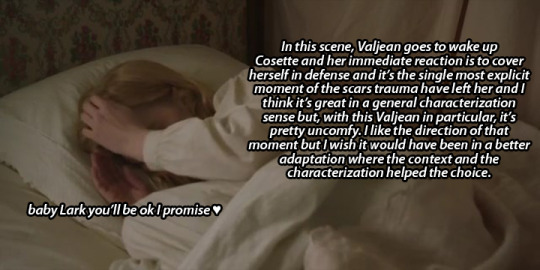
But all that kind of loses its importance when the men around her not only don’t give a shit but also do their worst.
Valjean manhandles her, harms her even, pushes her to the limits of her emotional state by taking her to see the prisoners intentionally after she mentioned prison, acting more possessive than caring and more erratically violent than conflicted and concerned.
Marius has a somewhat wet dream about her and then again dreams with her in confusing ways when he’s out of the barricade, with his grandfather talking about her as if she’s a piece of meat even after he meets her and she’s right in front of him.
They tried to make Cosette more aggressive, I think, more reactive, which in some moments worked. But when the lens in which she’s viewed is objectivizing, when she’s being commented on, offered and treated as an object, then it isn’t enough. It makes it worse, actually.
I’m sorry for Ellie, though, she did good.
3. Éponine
Much like Cosette, Éponine’s childhood was all but a few cameos. It’s very often that adaptations try to “tone down” Éponine in order to pull a narrative of her as an underdog in a love triangle, the “friendzoned” girl who tragically dies. The musical does that, for example.
Some of Éponine’s most controversial actions in the brick tend to be most often deleted or changed, except for adaptations in which she’s an “enemy” to Cosette’s narrative of a classic heroine.
It isn’t easy to find adaptations that are able to make Éponine showcase the complexity of her canon character not as a problem but as what makes her character so good and important in the overall story. Hey, even fandom sometimes tends to romanticize Éponine as if she had to be “redeemed” in order to be seen as a worthy character (but that happens a lot with female characters in general).
Éponine doesn’t exist for Marius’s narrative, as the other girl in a love triangle, or for Cosette’s narrative, as an enemy, she’s her own character with her own reason for existing and complex human dynamics that are extremely permeated by the social circumstances she’s immersed in and represents.
I’d say this adaptation is on the group that uses her for Marius’s storyline.
Added to that, it’s one of the worst I’ve seen on that case, because in this one, Marius is complicit of Éponine’s intentions, which are sexualized to a degree I don’t feel comfortable with.
We’ll talk a bit more about the Marius side of things later, but for Éponine, it meant she was reduced to a character that exists to sexually awaken Marius rather than a tragic figure on her own or even a piece of a love triangle. So, basically, this is the worst I’ve seen in a while.
This is clearly seen in that interview when Davies explained why he added that “wet dream” scene, saying:
“One of the best things Hugo does is to have Eponine tease Marius with her sexiness because he is a bit of a prig. So I have introduced a scene where Marius, even though he is in love with Cosette, has a wet dream about Eponine and feels rather guilty about it. I think it fits into the psychology of the book.” Source
Let’s leave out the part where he considers that to be “one of the best things Hugo does” because I cannot deal with that right now. Let’s focus on the other bit.
Like this quote suggests and I said before, Éponine was rather reduced to a tool for Marius’s sexual awakening. In this version, it isn’t only the “wet dream” which precedes more crucial interactions between Marius and Éponine, there’s also a scene where she strips for him through the hole in the wall and another where Courfeyrac is commenting on her and Azelma as Marius moves into the building for the first time.
By the time Marius gives her his money and any sort of bond can occur, it’s evidently clear in this version that Éponine has been teasing Marius and he is fully aware of it. He looks at her through the peep hole licking his lips and then has that disturbing dream where she’s kind of forcing him onto her in a very questionable way.
So, this Marius is by no means unaware of the fact that Éponine was attracted to him in some capacity and has played along her seduction, which makes his dismissal of her and his request for her to find Cosette a lot like he is using her for his own gain and replacing her for another girl.

Éponine’s attitude, much like Cosette’s, tries to be more active at times. She’s confrontational to her parents, seems protective of Azelma and is pleased to see her mother stuck in jail.
However, much like with Cosette, any kind of agency is compromised for having her narrative be serving a male character’s development rather than her own. Her involvement in the barricade is also somewhat modified but, by that time, her journey has already been substantially affected.
Much like Ellie, Erin was a very good Éponine when she was allowed to perform at her best and I wish she had been involved in an adaptation that was able to portray Éponine with more justice.
I’ll talk a bit more about women on the show in general in problem #3 but, for now, let’s move on.
Problem #2: The portrayal of masculinity
1. Javert
I am not the best person to write an essay on Javert, there are a lot of people more capable than me for that, and I may be called out for this and mess everything up, but I can’t write overall opinions without mentioning my issues with his characterization, at least summarized.
Javert is a complicated character. He is, as much as everyone else, affected by the circumstances and a man who goes through a huge emotional impact and sees his values questioned and compromised. His and Valjean’s journeys have a lot in common, in different ways and with different outcomes.
Sadly, Javert tends to be seen as a villain in a lot of adaptations. It’s a way to simplify the plot in the way movies tend to do: something is defined by what the other isn’t, if Valjean is the protagonist, then Javert must be his antagonist. I was worried that this version was going to fall into that trap, because of time restraint and Davies’s tendencies of simplifying complex characters.
Javert’s characterization was erratic, much like Valjean’s. His attitude was blurred by fits of rage and moments of confusing violence, followed by charged pauses in strange cadences which tended to fluctuate. I don’t think his attitude was as all-over-the-place as Valjean’s, but it was certainly not as well defined as other Javerts I’ve seen through the years.
This Javert, however, had a choice made for him that separates him from other versions:
Over tea in central London, Davies tells me that he was surprised to discover that, in Hugo’s 1862 novel, neither character [Javert or Valjean] mentions any sort of sexual experience, leaving the 82-year-old screenwriter wondering, at least in the case of Javert, whether it was indicative of a latent homosexuality. Source
There is a lot to unpack there.
First, there’s this idea of masculinity in which the lack of explicit heterosexual intercourse in canon is directly representative of homosexuality. I’m not gonna delve a lot in the brick but there are a good bunch of characters you can easily read as gay. Hell, there’s that whole thing going on with comparing Enjolras and Grantaire to greek couples. And if you want to write Javert as gay, go ahead, there’s a lot of fanfiction out there who is with you on that and I’m here for all interpretations, no problem at all.
But if you’re going to take that route, you need to be careful with your optics.
This Javert is, at the end of the day, in this adaptation, a gay man of color. He is also explicitly obsessed with Valjean in a way that exceeds his sense of justice. He looks at him undress in prison, is all over his personal space while he’s in chains and later interrogates him believing Marius is his lover, clearly attempting Valjean to confess to him if he was. He receives a lot of comments from an officer who touches him and looks at him strangely in the last episode, prompting an immediate rejection from him.
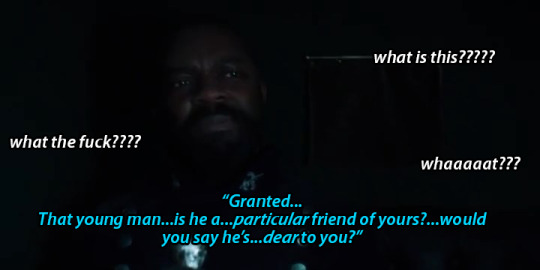
Everything points to Javert’s homosexuality being in the plot only as a further motivator for his need to capture Valjean, which makes for both a problematic portrayal of predatory homosexuality and a subsequent narrative of police abuse, both very problematic aspects to portray through a gay man of color. The way he acts and the way in which people act around him make it seem like his obsession with capturing him is fueled by the fact that Valjean represents his closeted feelings and that is all kinds of messed up.
He is also clearly not as involved in other aspects of the law as he is in capturing Valjean, since Thénardier ends up being a secondary worry to him, even explicitly knowing he has been mistreating and abusing a child, and he also explicitly doesn’t care about his achievements or the ones of his other officers as long as Valjean is on the loose. He lets Thénardier escape prison on his watch and doesn’t take care of it himself, prioritizing Valjean.
It isn’t about what happens in canon or not but in how all of this, in this version, is framed under this idea that Javert is also gay and has an obsession with Valjean that seems predatory in part, rather than fueled by his beliefs. And that is a dangerous optic to write a gay character under. Especially a police officer who is also a man of color.
I’m not the one to talk about that, it’s not my experience to tell and I’m not going to speak over those whose experience this is, but as a content creator, I’d question if my need to diversify is stepping over the lines of problematic aspects that may ill represent the identities I’m trying to integrate. Just saying.
David’s performance hits some very good moments, especially when Javert starts contemplating suicide. That is a very important scene in every adaptation and a very amazing chapter in canon and David does well in performing the turmoil in Javert’s decision. They also add, as a voice in off, the notes he left to improve the service, which is a great touch.
But, much like the other characters I mentioned, his performance is blurred by these writing choices in which Javert has been added this sort of predatory sense in which Valjean in jail symbolizes also keeping his identity hidden away. Davies would probably say his “desires” because that’s the kind of guy he is.
I hope my opinion isn’t overstepping anyone’s voice and I’ll leave the further of this discussion to someone more appropriate, but I felt it was an important matter to include and something we all, as media consumers, must pay attention to.
2. Marius
I had higher hopes for this boy, I really did.
The good thing this adaptation does for Marius is give him a bit more room than others do. They touch more on his relationship with his father and his grandfather, they bring up the Thénardier connection to his dad, they introduce Mabeuf, and they bring him on as a kid in the beginning, which even though questionable in comparison to him having more development as a child than Cosette and Éponine, at least helped to introduce him as another key character of the whole story.
I had hopes that this earlier introduction, albeit unfairly unbalanced with Cosette’s and Éponine’s, would allow for his character to develop more strongly, especially since politics were very present in his conversations with his grandfather and the ideals of his dad. I thought that by introducing politics through Marius that would allow his connection to Les Amis de l’ABC be more profound when the moment for revolution came.
Yeah, no, that didn’t happen.
Les Mis is a book where people are the heart and soul of it. With that in mind, characters aren’t like each other, they aren’t repetitions of the other’s attitude, they are diverse reflections of the complexity of humanity. The portrayal of masculinity in characters like Javert, Valjean, Gavroche or each individual member of Les Amis aren’t the same between each other, and neither are the same as Marius’s.
Marius represents a very wide emotional spectrum. He’s sensitive and vulnerable, passionate and driven, but at the same time can take action into his own hands when he has to and fight, even at the cost of his own life. There are layers in Marius. Like a Rogel cake.
I don’t want to generalize but a problem I have often with older male writers is that they see emotional complexity as weakness, especially when it comes to the portrayal of masculinity. There’s this idea in which something that is undefined or conflicting isn’t “strong” enough and therefore requires forcing.
Remember that quote I brought up for Éponine’s characterization? we’re going back to that. To Davies calling Marius “a prig” in need of being seduced.
Like I said, this version made Marius complicit in Éponine’s advances and aware of her sexually charged intentions, and this was made in an attempt to “upgrade” Marius’s masculinity and make him “less of a prig”. Because in order to be a Man, Marius needs to objectivize women. Apparently.

Like I mentioned, the gesture of Marius giving Éponine the little money he had ended up being a lot less effective by the fact that he had already fantasized about her more than once, and with her knowing that. He is taken to a brothel by Courfeyrac and Grantaire in which women pretty much throw themselves at him while he looks for Cosette. The “wet dream” he has is a very eerie combination of idealization and assault, in which Éponine, taking Cosette’s place, forces him onto her (much like Davies is forcing this onto Marius).
It isn’t about sex or eroticism being introduced to Marius’s storyline, is that they appear forced and almost violently thrust upon him in order to validate him in this idea of masculinity the adaptation seems to have, which seems to be very narrow.
And, with that in mind, we’ll move on to the last bit of this section.
3. Valjean
I am unable to write a piece about how many layers of wrong this Valjean embodied.
There are a lot of good tumblr scholars and Les Mis experts talking about it already, they can explain better than I ever could, but we need to, at least, try to glimpse at the mess this was, because this is a post on problems and this was a major one.
There are a lot of interpretations of Valjean, some of which are astronomically awful. He’s a character that can be easily fucked up, maybe because he also represents a very complex range of emotions, a very wide spectrum of masculinity, and is inserted in a wide variety of social contexts and spheres during his lifetime, which permeate his way of living as well as his agency to do things.
Any adaptation of Les Mis from the get go starts with the challenge of representing all of this in a limited time frame and with a limited perspective. It’s very difficult to translate not only all of this complexity but also all the thoughts the narrator can rely, all the feelings and conflicts and internal turmoil that we can get from the book because it’s written.
The musical, in that sense, has some elements from its medium that help, like the soliloquies, the changes of key, the ability for characters to bear their souls through song without interrupting the believability of the story.
Representing Valjean without a medium that allows a peek inside his head is a big challenge. He is a character whose turmoil is most often interior, so showcasing that externally poses difficulty.
Still, you can’t fuck up this much, my dude.
I’ve seen bad Valjeans in my life, this one is...complicated. He’s not good, don’t get me wrong, but he isn’t as clear-cut godawful as others I’ve seen, he’s too erratic to be easily described.
I think this adaptation tried to showcase complexity through visible emotional distress and physical violence. Instead of having a soliloquy or symbolism, we have Valjean shouting or screaming or burning his hand with a coin and staring at it for a while or shouting at nuns or carrying Cosette by force so hard her arm is in pain.
Everything gets even more confusing when everyone around him treats him weirdly.
You get years of exposition clumsily thrown at you via a speech Fantine hears when she arrives at Montreuil and he’s been elected. You get girls looking at him naughtily and suggesting Fantine to try to seduce him. You get inkeepers and Thénardier suggesting his intentions with child Cosette aren’t appropriate. You get women in dress shops thinking his intentions with young adult Cosette aren’t appropriate. You get Javert thinking his intentions with Marius aren’t appropriate. Everyone wants to talk about Valjean’s sex life or something, I don’t know.
His attitude towards Cosette is also muddled by this erratic behavior and the very strange way in which he sees her and Fantine.
He is visibly more worried about men taking advantage of her, of “defiling” her, than other dangers she could be in, like his identity being found out by the police or her falling in the hands of the Thénardiers again. He forcibly removes her from Marius’s presence and has a fight with her about it that ends on him taking her to see the prisoners. He knows she still, as an adult, visibly flinches when she’s approached harshly yet manhandles her when he wants to keep her locked up.
There’s something possessive about this Valjean that ties in to how Cosette is portrayed as an object. He talks about Cosette as if she was something he needs to keep, says Marius will “rob” her, not because he wants to be a good father or see her happy but because she is his to have.
This Valjean feels as if Cosette was his attempt to get rid of the guilt he feels for having failed Fantine more so than anything else. She’s less of a person and more an object he needs to keep for himself like a third candlestick. That’s the impression I got of their relationship with his characterization.

By the time the series ended, I felt upset with Valjean.
I didn’t care if he died, I didn’t care if he suffered. And that’s pretty shitty for a Les Mis adaptation to prompt. He made me feel uncomfortable, uneasy, as if he was the last person I would trust to take care of a young girl. And whatever internal journey he was going on wasn’t developed well enough to understand any of these choices.
I don’t know, like I said, I’m not an expert of the subject of Jean Valjean, but I’m pretty sure this is not how you adapt him.
Problem #3: Diversity without optics
This show hadn’t even started and it was already patting itself on the back for being diverse.
Now, if you haven’t been in the world of Les Mis for too long, let me tell you there are a lot of adaptations which are diverse, and not only of the musical. In itself, it wasn’t a pioneer move, but I was nonetheless happy that they were going to pay attention to that. At the end of the day, Les Mis is about society, about oppression, and adaptations of it should represent the diversity of the social landscape of the time and place they’re created in.
That being said, diversity in a highly political storyline needs to be carefully worked through, because without optics you can make questionable choices. And, you guessed it, questionable choices were made here.
I can’t and won’t go over all of the issues with this that there are, but I can give a few examples.
There is, of course, the always present argument of casting Fantine and Cosette white and the majority of the Thénardiers and Éponine as poc. And of casting the majority of Les Amis as white and the majority or most visible part of Patron Minette as poc. People have discussed this at length so I won’t go over that.
There is also how constantly woc were cast in roles of service, some of which were questionable given the context. Simplice, for example, is cast this way, which I overlooked at the time but as it kept escalating with other characters like Matelote and eventually Toussaint, it grew a bit more complex.
Toussaint was...a very problematic choice.
When you present the character of a “housekeeper” in a period series which is meant to represent France in the 1800s, and she is a woman of color, some alarms start ringing. I don’t specialize in French history, but my instincts were proven correct when I checked various sources on dates, after seeing the episode, and I’m quoting wiki for easier access here:
Slavery was first abolished by the French Republic in 1794, but Napoleon revoked that decree in 1802. In 1815, the Republic abolished the slave trade but the decree did not come into effect until 1826. France re-abolished slavery in her colonies in 1848 with a general and unconditional emancipation.
This series has a weirdly set timeline in comparison to the book but, for all intents and purposes, we’re in the early 1830s at the time she’s first introduced, correct? There was still an unstable situation regarding abolition at the time. The general emancipation hadn’t been yet stated in the colonies and the decree had just been starting to hold effect.
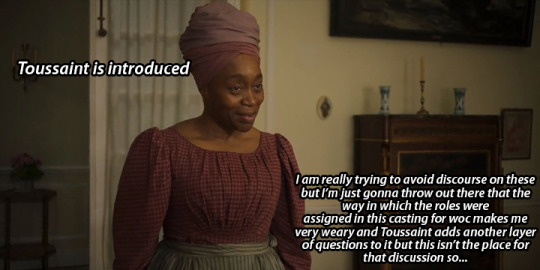
I know this show is casting in a general way as a suspension of disbelief of some historical facts and I’m all for diversity in casting in period dramas, regardless of anything else, if it’s allowing for representation in media.
But, at the same time, you need to be careful with your optics. She could have been cast as anyone else.
I don’t wanna go over this a lot because I don’t know enough about these parts of French history nor is it my story to tell, but the problem is in the erasure of conflicts or racism altogether as a way to prompt a shallow sense of diversity in a story that is directly linked with the subject of oppression.
Let’s continue with another similar optics problem involving “diversity” to exemplify this issue further, so that I can clarify.
This barricade had women on it and didn’t have Combeferre.
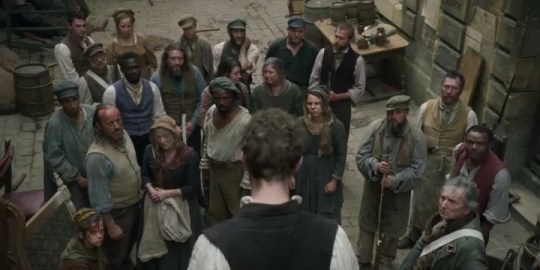
Now, here is the thing about that. In the barricade my man Combeferre gives an amazing speech about women and children.
In case you weren’t aware, the 1800s were the moment when European women and children barely started to be seen as separate members of society and not only “men but worse” and “men but small”. There are a lot of good articles about that, including one by Martyn Lyons about the new readers of the 19th Century, which changed the course of the editorial market, those being women, children and working class men, who didn’t have access to literature or literacy before that. The idea of childhood as we know it started then, and the later editions of the Grimm fairy tales was one of the first published books of fairy tales explicitly aimed at children’s education. And since a lot of us, in other places of the world that aren’t Europe, were colonized af or barely getting free from colonial governments in the 1800s, we kinda had to go with the flow, regardless of the social structure of native peoples, because colonialism sucks.
But you all came here for Les Mis so, let’s get back to that.
As this terrible and summarized dive into history implies, women and children were vulnerable to the fucked up state of social strife. Education was scarce and only accessible to some, employment was scarce and only accessible to some, food was scarce and only accessible to some. Most often than not, “some” did not include women and children.
In comes the the sun to my moon, Combeferre, with his speech.
He talks about all of this. Basically he talks to men who are the main providers of families, providers of women and children who depend on them and goes (I’ll paraphrase) “it’s our fault as a society that women can’t be here now, it’s our fault they don’t have the same possibilities and education we do, so at least do them a solid and don’t die today here if they depend on you to live, because the only possibility they have without your support is prostitution”. It was a fucking power move to include that on Les Mis. I mean, the entire book is a call out to the social and political situation, but damn.
So yes, there aren’t women there but the reason for it is that patriarchy sucks and the consequences would be disastrous for them.
Davies & co. pretty much didn’t give a shit about this. But, at this point, considering Problem #1, who’s surprised.
They removed Combeferre, his speech and placed random women on the barricade, as if nothing of that was going on and the patriarchy didn’t exist. Because ~diversity~.
The fact that they thought more woke to put some random women there on the barricade to die fighting instead of acknowledging the existence of sexism altogether pretty much sums up what this whole show thought diversity was.
For them, diversity wasn’t a political and social standpoint born from reality, a way to represent the dynamics of oppression that are at stake even on this day, but an aesthetic.
And, talking about speeches, let’s move on to the next bit.
Problem #4: Where are the politics?
1. The social and political landscape
Les Mis adaptations have a fluctuating balance with politics and social conflicts.
That is, at the end of the day, the very core of the existence of this story, the reason why still, to this very day, it is relevant and quoted, adapted and regarded is the fact that we still need it.
All of us, as human beings living as members of society, are always immersed in political decisions. It’s not only unavoidable, it’s part of our lives as people living together.
In the same way, the personal narratives of the characters of Les Mis are intrinsically linked to this landscape. They are set in different places of the social spectrum and hold different power dynamics and actions that relate to political standpoints.
Adaptations tend to work this in very different ways.
Some focus less on the politics and more on the social strife, with a greater focus on the characters. Others re-insert the characters in other different historical moments with the same levels of social and political strife. Others just copy-paste the situations and put them in another context, without really explaining what revolution it is, what they’re fighting for and why they’re being killed. The focus varies.
It seems, for how this adaptation starts, with Waterloo and a subsequent argument between Gillenormand and Baron Pontmercy about Napoleon, that politics are going to be important. This doesn’t last very long.
My biggest issue with the introduction of these circumstances is that they don’t bother on them but then attempt to use them for gratuitous self righteousness. It isn’t that they abandon them altogether, they overlook them but then attempt to use them for shock value.
There is a constant use of exaggerated, almost cartoon-y, stagings of social depiction:
- You have Gillenormand dining with his boys, in a luxurious and incredibly flamboyant scenery, while dissing political views in an almost comical fashion
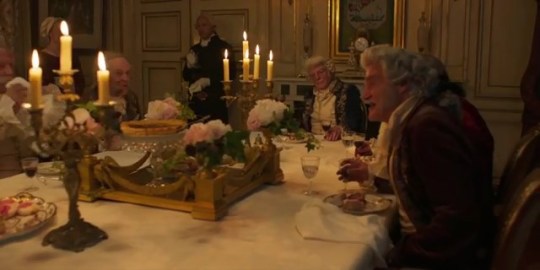
- You have beggars downright assaulting Valjean and Cosette on the street right outside the convent, as a means of shock to Cosette’s expectations of the world outside of it
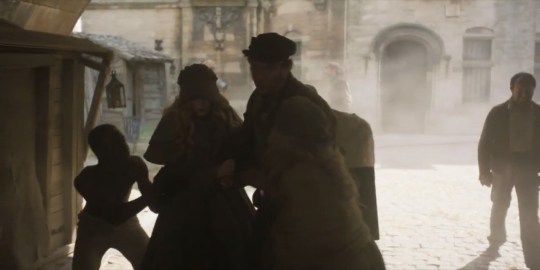
- You have Fantine’s entire sequences as a prostitute with higher and higher degrees of abuse
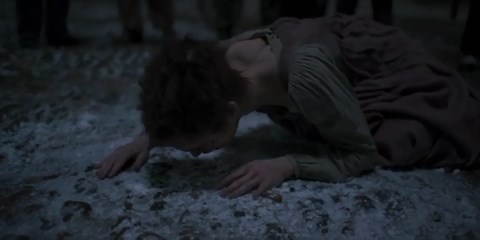
- You have the streets before the barricades, in some sort of confusing clamor that loses focus in favor of Valjean’s storyline
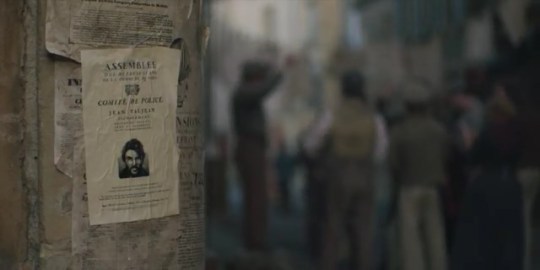
- You have a god awful last scene which attempts to say something socially compromising by showcasing the kids Gavroche was helping (I don’t think they’re siblings in this version), as a means to say “the revolution wasn’t successful and social strife will always continue” I guess, I don’t know, because it’s not like they gave a shit about it all before, so this kind of Perrault-ish moral of the story at the end makes no goddamn sense
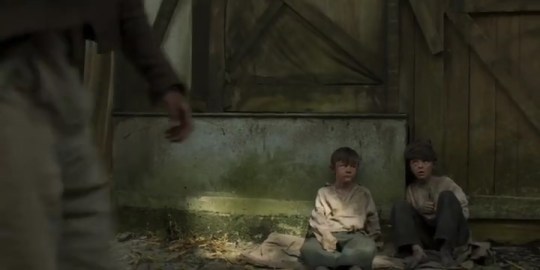
They are exaggerated snippets of things without context, with very little exposition, that are used more as props to shock than they are to actually take a stand on what the original story is trying to tell.
Even the reality Fantine has to suffer is blurred by the fact that the social situation isn’t seen as much as a reality in itself but a combination of Fantine’s “choices” and Valjean’s “guilt”.
But, in order to delve more into the non-political aspect of this adaptation, let’s focus on some specific characters.
2. Enjolras
Well, I’ve seen a lot of Enjolrai in my life (is that be the plural of Enjolras? yes? no? can it be?).
Enjolras has very different characterizations, even within fandom itself, but we can all agree that he’s a) highly political, b) highly committed to the cause and c) extremely charismatic.
And when I say “charismatic” I mean it in the sense that his speeches are so beautifully crafted, so certain and commanding, that you just wanna listen to what he has to say, regardless of your views. They’re political discourse but also very poetic, which is a very interesting literary opposite to Grantaire’s voice, but I digress.
Still, Enjolras doesn’t stand on his own.
He represents a part of a whole, an important part, but a part nonetheless. Les Amis are a very diverse mixture of individuals, and the main triumvirate represents different stances on the same political action that coexist together.
Without others to stand with, Enjolras loses context. Not because he can’t support himself as a character, but because his biggest value is within other people.
This Enjolras is confusing, angry and loses a lot of steam when most of the people who should be around him aren’t really paying attention.
Courfeyrac, although performed really well, doesn’t really get a chance to show his political ideas without Enjolras around, and that makes it seem like he’s being convinced to participate rather than doing it for his own reasons and being one key part of the group.

In the barricade, Enjolras acts as if he doesn’t know what he’s doing half the time, and the other half he doesn’t give a shit about killing soldiers, smiling and laughing while shooting people.

It isn’t just that the scene with Le Cabuc doesn’t exist, Enjolras doesn’t seem to have empathy, which is all given to Grantaire instead.
By taking away Enjolras’s vulnerability, his complexity, they make him seem more shallow overall, and in tow, make his cause lose importance.
And without a clear political standpoint, because his expositions about the situation are very shout-y and unclear, and his speeches are summarized with some actual quotes but without their meaning and true feeling, he seems to be fighting just because, rather than having strong ideals.
Enjolras in the brick is eloquent enough, humane enough, that you understand what he’s doing and why. This Enjolras is a mess that I couldn’t understand at all.
I don’t think people who have never seen, read or heard of Les Mis before will understand Enjolras as a character through this. He’s just a very angry student with weird facial hair (why?) who rants in a cafe while his friends are playing games and making jokes, who is friends with some workers and is the leader because he shouts the loudest but doesn’t seem to know what he’s doing.
And, worst of all, doesn’t seem to care for human life. Which brings me to the next bit...
3. Grantaire
Man, was I excited with this casting choice.
When I heard Turlough was playing Grantaire, I was delighted. And, at the end of the day, his performance was very good, but for a character who wasn’t quite Grantaire at times.
I mean, he wasn’t as off as Enjolras, but he was also so erratically written.
They decided to make Grantaire hesitant rather than a cynic. He didn’t get to express his cynicism or his attachment to his friends (what friends though? only Bossuet had a name other than Courfeyrac and Enjolras) and his involvement with the fight was shown as insecure rather than questioning of ideals.
He is shown conflicted when he decides to fight with them, he doesn’t have any of his long speeches, the Barrière du Maine scene or anything of the sort. He is just...hesitant about death, I guess. About dying and killing people. That’s his conflict.
This has, to me, two big problems attached to it.
First, it’s a simplification of the entirety of Grantaire’s thoughts. It’s taking the cornucopia of drunken philosophy that Grantaire’s voice in the brick represents and replacing it with a single fear, which while very valid doesn’t reflect Grantaire’s true extensive complexities.
Second, it takes away from Enjolras’s humanity. Enjolras is showcased as an indiscriminate machine of shooting soldiers while Grantaire is conflicted about having to do this and, in tow, makes Enjolras’s rejection of him when he leaves and gets drunk like a jerk move of an insensitive asshole.
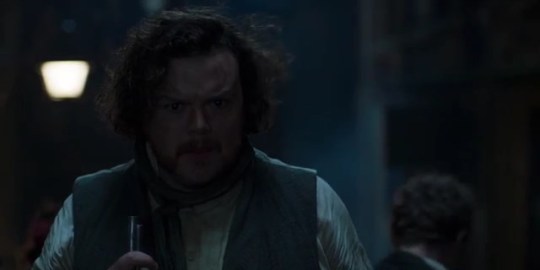
There isn’t a clear instance of Enjolras giving Grantaire a chance to do something before the barricade and Grantaire failing at it, with all the dominoes symbolism and all the stuff it implies. There isn’t a complementary set of complexities between each other. Grantaire seems to care about human life more than Enjolras does in this version, at the end of the day, because Enjolras’s speeches, even if carrying canon quotes, are inserted in a context in which he laughs while shooting people, knowingly sends Gavroche into danger and chastises Grantaire for being conflicted about human lives at stake.
So, instead of representing Grantaire’s true complexity as a character, they chose to give him something else that they think makes him more dimensional, when, in reality, takes away from his (and Enjolras’s) worth as a character.
All of this is very weirdly intersected with drunken jokes. Sometimes, the jokes and the behavior pays off and is inserted in good moments, sometimes they just don’t know when to stop and they kind of ruin their death scene with them, which is even worse considering it’s one of the few where they’re actually holding hands.
Overall, I think this was a simplification of Grantaire, in a way, a simplification which falls apart without a solid context to exist in. And it’s a pity, because Turlough was good.
4. Gavroche
The only reason I’d want an immediate new adaptation of Les Mis is so we can cast this same Gavroche in a decent one. He’s one of the best Gavroches I’ve ever seen, hands down.
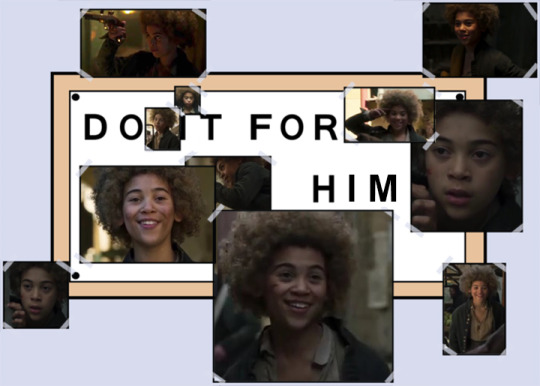
In this case, the problem isn’t with his interpretation or how he was written, necessarily, and all time frame and socio-political simplifications aside, the problem is in how the context reacts to him.
A lot of Gavroche’s agency is deleted in this version.
For starters, his age is kind of all over the place at the beginning. He’s fine by the time of the barricade, but before it’s kind of a mess. As a result, he lives with his parents for a bit longer than necessary and the few times we see him on his own, being his independent self, are in conflict with how his involvement in the main events come to happen.
It feels as if he’s been used in the barricade. When he’s off to find bullets, only Marius tries to get him back to safety, while the rest cheer him and laugh.
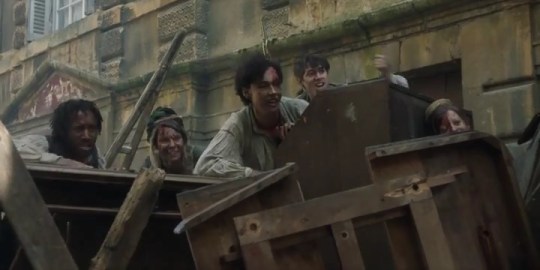
His character is well performed and we get to see his personality and his situation when he’s allowed to act on his own, but within the context he’s inserted in, he seems more like a prop than a character.
This makes it so that when he dies, you’re upset more so than sad. It doesn’t feel like a tragic circumstance born out of a lot of layers of social strife which culminate in a dead end for a kid who deserved a better life. It feels like every adult around him, every person he encounters, either neglects him, mistreats him or sends him into danger. It feels, much like with Fantine, like an easily avoidable situation.
And things get worse with this guy:
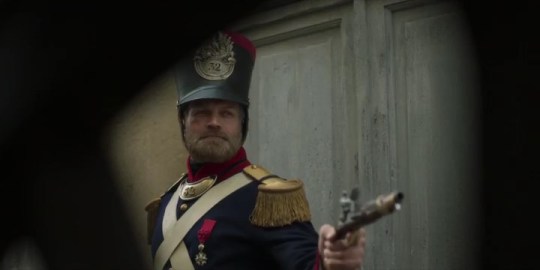
Like I said in my summary, this David Harbour-ish soldier is the one who is shown to mercilessly kill both Gavroche and execute Enjolras and Grantaire.

This is another layer in the modus operandi of an adaptation who uses social oppression and political strife as shock value rather than commentary and discourse.
By personalizing “evil” in one stern, mean, unreasonable, power-hungry soldier, they’re villanizing (and trivializing) the social context as a whole. It isn’t about how Gavroche got to that point, how we as a society failed so hard that he has to die in that way. It’s just one bad guy.
But then, they try to be fake deep about it, by doing that last scene with his brothers or by placing him alongside Mabeuf and Éponine but not explaining what that means, why those juxtapositions are socially relevant and important to the plot (maybe they don’t know why).


Overall, this was such a waste of a great Gavroche that I just feel really bad. Reece deserved so much better.
5. The barricade
Needless to say, this barricade was more of a mess than you would have expected.
The lack of proper introduction to the political landscape, the clumsy exposition, the out of context shout-y speeches and the erratic behavior of its characters, paired together with the fact that it ends about 1/4 into the last episode, giving more time to personal drama than any of what happens in it, makes it one confusing mess.
It’s also in the barricade where it’s super clear how visually similar this series is to the 2012 movie. A lot of visual choices are extremely similar, even when they didn’t need to be (Fantine’s and Cosette’s hair choices? the shots in the hulks? the scaled down yet very similar camera angles and movements during the entire fight? the color schemes of some particular scenes?), and it’s pretty heightened in this barricade.
Which I wouldn’t care about hadn’t they talked crap about the movie during their entire PR campaign.
Like I said, there were so many issues within the people involved in the barricade. With the women, with the characters, with the soldiers. There was also a very strangely set line between workers and students that they were very clumsy about setting yet didn’t get to do much aside from having the leader of the working class men leave when Enjolras prompted it.
By the way, Enjolras was a lot less convinced about the whole ordeal in this version, which made his characterization even more confusing.
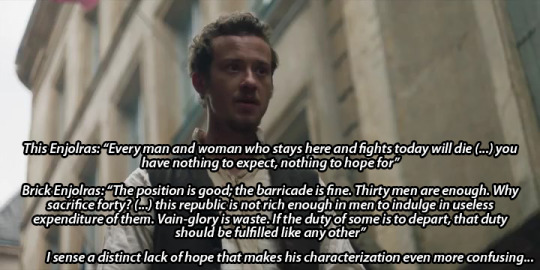
The barricade had a lot of messed up ingredients and not enough time to even simmer. At least the musical, which doesn’t have a lot of time dedicated to the students either, has Drink With Me, which doesn’t only serve as a way to characterize different students and their beliefs and personalities (“Is your life just one more lie?”) but also brings some melancholic change of pace, a pause between the action.
The highlight of this barricade, though, is Marius going apeshit with the torch.

But, all in all, there’s no much we can expect from a barricade born of confused ideas and even more confusing characterizations. This barricade feels less like a climax and more like a thing they had to do because it was in the book.
And don’t even make me talk about how they butchered my favorite speech. I’d rather not have it there at all, tbh.
Conclusion: A writer’s ego
We arrive to the end of this long and boring trip through my thoughts. If you’re reached this point, thank you for your time.
All in all, I feel like a lot of the issues of this adaptation stem from the fact that Davies thinks he’s better than everyone else and other men around him agree so much that they let him do as he pleases, without questioning anything.
I can’t really understand how you’re going through the script of this and see some of these choices (like the dress shop scene, the carriage scene and let’s not even mention the peeing in the park scene) and you go, and I’m quoting Shankland here:
“Andrew’s scripts made these characters feel modern. That was nothing to do with having them speak in a very modern way or changing their behaviour, he just found the humanity and earthiness of it,” Shankland says, recalling a scene in which Fantine and her companions urinate in a Paris park. “I thought, ‘Oh god, they’re going to pee in Les Misérables, that’s exciting.’” Source
That just sums it all up, doesn’t it?
After I watched this, I let some time pass. I watched all 3 fanmade adaptations that are currently out at this moment (back to back), revisited some of the ones I had seen before, read fics, read people’s articles and rants, looked into other adaptations on stage, from the classic ones to the more interpretative versions, and other current tv adaptations being done in other countries.
All of those things are vastly different. Some are more similar to each other, some are widely different, but they’re all different points of view on the same canon.
This is a canon that has some of the wildest possible interpretations coexisting. You can have a play centered on one specific character told through the songs of a specific album, a tv drama in modern times with a lawyer Valjean, a coffee shop au starring Les Amis, a parody comedy set in 1832, all happening at the same exact time.
And that’s great. That’s fascinating. That means this book is still alive because we need it still today.
Some days you’re in the mood for a heavily political adaptation which gives you goosebumps for setting canon in a context that is closer to your everyday reality, other days you just want all the Amis to live and have movie marathons cuddled together. It’s all valid.
But what all of those adaptations have in common is that they aren’t trying to be more than they are. They aren’t acting brand new, they aren’t pretending they’re re-inventing the wheel or that they are smarter than Victor Hugo himself because what Hugo didn’t know he needed in the “psychology of the book” was a soulmate au or a documentary series.
This adaptation, through what they said and how it was written, acted as if it was going to be the ultimate Les Mis adaptation to end them all. It presented itself as smarter than us all, as holding the keys to the meaning of Victor Hugo’s thoughts, as being able to fix his “mistakes”, fix other adaptation’s “mistakes” and deliver the best interpretation of canon possible.
And it managed to be a sexist, socially insensitive, problematic, un-political, homophobic mess.
Which, is a problem in itself, but even more so when the canon you’re adapting should be, first and foremost, against all that. It isn’t about how many brick quotes you use, it’s about channeling the soul of the story.
#les mis#les miserables#les mis bbc#les mis bbc a summary#jean valjean#cosette#fantine#eponine#marius pontmercy#enjolras#grantaire#gavroche#death cw#long post when expanded#luly rambles#bbc les mis
50 notes
·
View notes
Photo
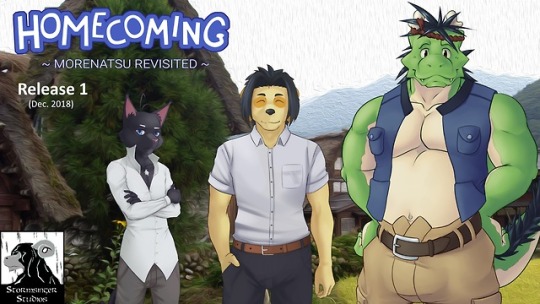
Homecoming ~Morenatsu Revisited~ (Release #1)
Happy holidays, everyone!
It's been a long development process, but we've finally made it! Me and the rest of Stormsinger Studios are proud to bring you the first release of Homecoming!
After some extensive pre-release testing and a stream preview courtesy of our friend Deckerlink, we feel it's finally ready for the public. A lot of hard work and dedication has gone into this project, and I personally couldn't be more proud of the results so far. We hope all of you enjoy the experience as much as we've enjoyed making it!
As stated in previous posts, Homecoming is a radical reimagining of Morenatsu, so please understand what it actually is. Going in, be prepared for many in-progress elements, especially on the art side of things. Homecoming is a ground-up remake of the Morenatsu we love, and many artistic liberties have been taken with the source material. We know that isn't to everyone's preference, but the intent of Homecoming is to provide a new, updated experience for old fans and newcomers to Morenatsu. For most of us on the development team, Morenatsu was a first experience coming to terms with who we are, and we want to provide the best experience possible for people who are in the same situation as we were all those years ago. If even one person plays our game and learns to love themselves for who they are on the inside, well...I consider that a victory.
A-Anyway, links are after this next section, where I'm updating the FAQ I made way back when we first announced this project.
Have a good rest of the year!
~ Dzahn
+++++ FAQ +++++
1. What is Homecoming?
A. Homecoming is a ground-up recoding of what we've already finished for Revisited. We're also increasing the game's resolution to a widescreen format, so everything should look cleaner and more organized. Essentially, think of this as a soft reboot for the Revisited project and a remake for Morenatsu as a whole.
2. Why stop developing the old version?
A. We believed it was a necessary step forward. Many issues started mounting as we developed Revisited, such as pressure from hardcore fans of the original to not change, disregard for the hard work we've put into the project, and resulting bloated code/file size trying to accommodate everyone. Starting fresh gives us the opportunity to make the experience we can feel proud of, ensuring every aspect stays consistent and the best it can be.
3. Will this change the story?
A. Yes, quite a bit, but ideally still keeping enough that it "feels" like Morenatsu. Revisited originally started out as a project to bring Morenatsu to a more accessible platform and correct grammatical errors. Along the way, it morphed into a project that tried to update the stories and give them more emotional depth. The same quality of writing you see in Revisited will continue on into Homecoming.
We are embracing the “adaptation” aspect of the project, though. This means that areas where we feel there needs to be a change, such as the inclusion of female sprites, we will be making adjustments. Entire routes from the original are being rewritten from scratch to match the quality of routes released later in the game's lifespan (Kounosuke, Shun, Kouya).
4. You keep using the word "adaptation". What do you mean by that?
A. Like when your favorite movie gets a modern remake, or an old classic television show gets a new revival, we see Homecoming as an opportunity to remake Morenatsu and give another spin on the classic storylines.
5. What does this mean for us who want the old art, music, and storylines?
We're making Homecoming because we love Morenatsu and feel another artistic direction will achieve the themes we're aiming for. We're not trying to spite anyone, as rumors have stated.
Other projects have popped up who meet the "don't change anything" expectations better than we ever could. Stormsinger Studios won't be the ones doing this for you, but if you want to experience the game the original creators intended, I highly recommend checking out rtlstien's Revival port:
https://www.furaffinity.net/view/26153752/
6. When can we expect updates for Homecoming?
A. We're all very busy people. Even this first release took a lot longer than I anticipated. Since we're not on any payment plans like Patreon (and have no desire to be), game updates are going to be on the old fashioned "when it's done" schedule. We'll try to keep you up to date in places like FA and Twitter, but due to our crazy schedules it would be foolish to force strict deadlines.
7. What has changed going from Revisited to Homecoming?
A. Homecoming aims to remake Morenatsu with a different goal. We desire to make a game that connects with people personally, makes them feel like things will get better in life...because eventually everything does. There is a light at the end of the tunnel, and we're restructuring Morenatsu to better achieve that theme.
Coming from Revisited, Homecoming will feature new sprites, CGs, music, sound effects...basically, new everything! The resolution has increased to a widescreen format, so everything has the chance to look better and feel more modern. As stated before, the storylines have been updated to aim for a theme of "Hope". Finally, most Gallery features from Revisited will be ported over to Homecoming over time, though they won't necessarily be there at first.
8. Why is the protagonist an Arctic Fox now?
A. I get this one a lot, so I'll copy/paste my most recent answer to this question:
I've been pretty apprehensive about the species change (and writing out humans in general) because I knew it would be hands down the most controversial aspect of the game. So far it's been very polarized, which I expected, but I've also seen plenty of people come around to the idea as the days progress.
I wanted to remove humans from the setting because it does two things for me: It makes worldbuilding easier with not having to explain why a vastly inferior species (humans, as written in the OG) are able to coexist with superpowered beastmen (allowing me to better justify reasons why these characters would love Hiroyuki in the first place), and the concept of "if everyone is furry, nobody is", which is to say that it's up to the reader to interpret everyone the way they wish. If you want to see the characters as abstracted humans, then you're more than able to. If you want to see them as humanoid representations of their species, you're more than welcome to as well.
In short, I made the decision to remove humans from the setting because I believe it gives me more room to write interesting characters and scenarios. It provides a different perspective on things that the original game didn't have, and I believe that's reason enough to justify the change. Keep in mind, Homecoming is a "remake" and not everything is going to be (or even intends to be) exactly the way it was in the source material.
== Additional response from Frostclaw: One of the biggest things people tend to ask is "Why an arctic fox?" and though Dzahn answered the reason we made him a kemono, it wasn't exactly stated why we made him an arctic fox in particular. The truth is, we were looking for a species that wasn't represented as much in Morenatsu. Ultimately, fox was chosen, which seemed to go well, as foxes generally tend to be cute, albeit rather silly. Given that it went with Hiroyuki's personality, it just seemed to fit. However, the suggestion to make him an arctic fox was mine, for a few reasons:
1. The yuki portion of his name. Yuki, as some people may or may not be aware, is Japanese for snow.
2. Arctic foxes are an uncommon sight in Japan (though you can see a few at Zao Fox Village). They aren't native to the region.
3. Hiroyuki is extremely sensitive to the heat. Since arctic foxes have a thicker coat of fur, it fits well to make Hiroyuki an arctic fox.
As it stands, Hiroyuki is a set species, and there are no plans to allow for a species change (as that would require intensive programming and rewrites of story elements). Additionally, his kitsune heritage also will be playing an important part to the story. I can't say much about it now, but please look forward to it sometime in the future.
+++++ Release 1 Features +++++
+ Game recoded from scratch, featuring updated art along with an increased resolution
+ Tons of new and remixed writing, including three "events" that were never seen in Revisited
+ New UI
+ Most of Act 1, will take you to the end of August 6th
+ A complete soundtrack with functioning Music Room
+ New options to tailor the experience to your needs, such as enhanced adult content controls
+++++ Downloads +++++
https://stormsingerstudios.itch.io/homecoming-morenatsu-revisited
+++++ Cool Links +++++
Homecoming ~Morenatsu Revisited~ Discord Server:
https://discord.gg/WTjM3S5
Homecoming Soundtrack Playlist (assorted):
https://www.youtube.com/channel/UCLjQbwdUtaxNekKAPzMx3Aw/videos
Deckerlink's preview stream:
https://www.youtube.com/watch?v=Fk16fWOi0mA
+++++ Our Pages +++++
DzahnDragon (Project Director, Lead Writer, Coder):
https://www.furaffinity.net/user/dzahndragon/
https://dzahndragon.tumblr.com/
https://twitter.com/DzahnDragon
https://www.twitch.tv/dzahndragon
https://www.youtube.com/channel/UCHwk40OW_bVzPqP6GBTU1qQ
Devilizer (Art Director and Assistant Writer):
https://www.furaffinity.net/user/devilizer/
Lesli-Chu!? (Composer and Assistant Writer):
https://www.furaffinity.net/user/leslichu/
https://soundcloud.com/user-141917326
https://www.youtube.com/channel/UCLjQbwdUtaxNekKAPzMx3Aw
Frostclaw (~Revisited~ Manager and Assistant Writer):
https://www.furaffinity.net/user/grompyryokin/
https://www.the-gcn.com/
HypoNova (Assistant Artist)
97 notes
·
View notes
Text
GOOD VIDEO GAMES THAT I PLAYED IN 2018
(I haven’t proofread this yet so it’s probably grammatically stupid, but I’m a stupid person so it fits my aesthetic)
I finished over 30 games in 2018, and spent I don’t know how long playing bits and pieces of I don’t know how many others, and, I gotta say, I feel maybe less connected to video games than I ever have before? I’ve had so many moments of weird disassociation while playing games this year where I’ve just felt like I’ve stepped outside of myself and asked “why am I doing this?”, only to handwave my astral projection away because I know why I’m doing this. I’m having fun!
I think?
There were many times where I would have this haunting, sinking feeling. The words of the modern philosophers Blink-182 reverberating around the inside of my head; well, I guess this is growing up. I turned 30 this year; it’s only natural with age that I would slowly move away from something that was so important to me from my childhood. My life has pretty drastically changed over the last five years or so, predominantly positive changes, thankfully, and my priorities are just different now. So it makes sense that my love and dedication towards video games should change too, right?
But then that same disassociating feeling would come when I would engage with other mediums. I felt it while reading books, watching movies or TV, when I was working, even while listening to music. Even while eating? And I *know* why I eat, it’s important! Which slowly lead me to the realisation that *I* wasn’t growing up, I’m still as cool and chill as ever. I own a skateboard and a basketball and completely ignore the dress code at work because I’m chill as hell! But like so many other aspects in my life, my priorities and the things I value have changed. It’s just that they changed without me realising and it took me the entire year to catch up with them.
I spent a lot of time playing games I didn’t like playing without realising that I didn’t like them. If I had the year over, I wouldn’t have banged my head against God of War trying to like it just because everyone is telling me it’s Good. I wouldn’t have spent dozens of hours playing and finishing Spider-Man despite feeling no connection to it all. I used to pride myself on playing and liking old games and bad games and finding things that I enjoyed about them on their own merits, but on reflection I realise they were just the games that I played in the gaps between these giant grey pillars of Big Video Game releases. This year, for whatever reason, that thought process inside of me snapped and I’m glad it did.
A big part of what made me want to play the new big releases was that I liked to be a part of the larger conversation about them, but now I realise the only people I actually want to have conversations with don’t care how new or old a game is, or how good or bad it’s considered to be, as long as I care about what I’m talking about.
Anyway, this is just a *very* long way of me making a very simple point, which is; fuck video games, do whatever you want.
Despite all of these weird misgivings and all this introspection I still had a good time with some dumb, stupid video games and I still like writing about them, so I’m gonna.
Resident Evil
I finished 2017 by playing both The Evil Within Games as well as Resident Evil VII and Revelations, and started this year by playing Resident Evil 4, 5, Survivor, and Operation Raccoon City. That’s a lot of Resident Evil! Too much? Who’s to say? (Me, I’m to say. And; yes, it’s entirely too much). I also spent about a month or so this year watching through all of the Friday the 13th movies which, weirdly, helped me frame the weird feelings I had towards Resident Evil. For both franchises there is something extremely specific that I want from them that I just don’t think either of them are really interested in giving me. I don’t want an impervious, hulking demon-Jason rampaging through the streets of New York or floating through space, I want the weird skinny, nimble Jason with a sack on his head who has lived almost his entire life alone in the woods just outside of Crystal Lake. An extremely human Jason who, when he gets hurt, grunts and cries in pain, but perseveres regardless because his mom is just a decapitated head now and he’s not really sure how he feels about it.
With Resident Evil I just want these small, personal stories. Individuals caught in a shitty situation with no escape and no larger agenda. No neat fitting, worldwide conspiracy or double turns involving the president’s grandfather owning founding stock in Umbrella or the T-Virus being written on the back of the Declaration of Independence. I loved the first two thirds of Resident Evil VII because that’s how it felt. It felt so *personal* in a way that I wanted. Resident Evil never wants to give me that, at least not entirely, but I will latch on to the few instances it does with dear life because, when they commit, even just slightly, it’s as good as anything can be.
Tony Hawk’s Underground
On Christmas day I fell into one of those weird deep but fleeting depressions that really only Christmas can provide. I tried to sleep but I just couldn’t, that weird sense of dread and helplessness eating at me, keeping me awake until the early hours of the morning. So, I got out of bed and decided to just embrace my depression by sitting in the dark and staring into the harsh glow of my computer monitor. I don’t know what it was that drove me to download all of the Tony Hawk games available for PC, but I did. It was cathartic spending hours mounting disks and entering cmd prompts to get those old games to work on stupid Windows 10. I then stayed up until six in the morning playing Underground, letting this warm and familiar game gently ease me back to a place and time when the only thing I cared about was stealing ten dollars out of my dad’s wallet so I could go to McDonald’s. It’s good to know that no matter where I am or what I’m doing or how I feel there will always be a place I can retreat to where Eric Sparrow is the world’s biggest dickhead and where I can do a 720 Benihana behind an alien themed strip club next to a cop standing suggestively next to a goat.
I was 15 when I first played Underground, and I’m 30 now, and it’s comforting to know that on the simplest level the things that I value the most are still largely the same. And those values are hating cops and listening to NOFX. Hopefully I can revisit it when I’m 45 and, if I do, I hope that I feel largely the same way.
Yakuza 4
I started my slow journey through the Yakuza series almost exactly three years ago and, in that time, I have played through seven games (finishing Kiwami, 4, and 5 this year). I’m part way through the Yakuza Fist of the North Star game and then, after that, I only have three games to go until I’m all caught up. Which, to be fair, will probably mean that by the time I’ve finished those three games two more will have been released. It’s a never-ending cycle!, but one that I’m glad I’m on.
I chose to specifically highlight Yakuza 4 because it just felt so special to me. It was the perfect meeting of everything that I have loved about all of the games that I have played, while also introducing me to characters that I have grown to love more than any others. Kiwami is a good game, but it’s just a remake of the first, and a budget remake at that, so it’s hard for me to feel strongly about it. Yakuza 5 is also good but, fuck, it’s *way* too long. It shouldn’t be that long! It’s like 60 hours long. That’s too long! Yakuza 4 gets everything right, it hits all of the sweet spots that every game after it should be judged against. And it also introduces Akiyama, a fictional man that I would risk my life for.
I try to recommend Yakuza to everyone, but it’s a *very* hard sell. It’s so long and so story dense. Every game except for the very first is spoken exclusively in Japanese, and reading subtitles for a series where each entry averages a 30-hour minimum play time is a lot to ask. But when you see Kiryu fight with his conscience over whether or not he should buy a porn magazine for a kid it really puts it all into perspective.
Final Fight: Streetwise
Final Fight: Streetwise is such a meme of a game. One of the classically bad attempts at converting a beloved 2D franchise into a 3D game. I’d seen videos of it before, even once watching an entire playthrough of it, and, sure, it seemed bad, but it also seemed charming too. I decided to finally sit down and play it for myself to see if I was just missing something in only having watched it and not played it and, to really no surprise because I’ve accepted that I’m just trash who loves trash, I loved it! It’s not a *good* game, but it has so much heart! I thought it was going to be something that was phoned in, a poorly put together 3D brawler with the Final Fight named slapped on top of it, but it isn’t. You can just feel that they wanted this to be something, and I really think it could have been! It’s too much of a stretch to think if they did a *few* things differently this wouldn’t be a bemoaned misstep in a dying franchise, but a cult classic that never got the praise it deserved.
It's very silly and unnecessarily over the top, but there is nothing that you can say that will convince me that if this game didn’t have the Final Fight name on it people would still bring it up today as something that we missed the potential on. This is maybe the hottest take that I have that no one will ever even pretend to care about, but I don’t care! Final Fight: Streetwise deserved better.
Florence
I don’t really have any patience for mobile games outside of this one NBA Jam game that I’ve had on my phone for like eight years and play exclusively when I hide in the bathroom at work because I don’t want to do any work, but Florence is so short and so incredibly charming that it might be my favourite game that actually released in 2018. It’s a narrative game about the life of a relationship between you, Florence, and some dude that maybe had a name but I don’t remember. A lot of the actual activities you do in the game are mundane, like brushing your teeth or unpacking your belongings or doing math on a spreadsheet at work, but they serve to make this very personal story feel all the more grounded.
It’s also the only video game I’ve ever played that has been set in Melbourne, where I live, and incorporates a lot of local places and scenery and that was very cool and exciting for me!
If you have a compatible smartphone please play Florence.
Severed
I don’t know that I really have anything particularly interesting to say about Severed. I played Guacamelee for the first time this year after owning it for a long time and just never getting around to it, and I fell in love with it, devouring it in a few days. It sent me on a trip through Drinkbox Studios’ catalogue, playing all of their games with the exception of Guacamelee 2 (I want to get around to it, but I’m just destined to take a long time getting there). The game that I probably looked forward to the least was Severed. It’s a first-person dungeon crawler with metroidvania elements where the combat and interactions with the world is done exclusively on a touch screen. I don’t like touch screen games at all, especially not ones with precise movements and timing, but I thought I would try it regardless and almost immediately fell in love with it. The art style is incredible and the general tone and mood of the game rules. Guacamelee and those Tales from Space games are super goofy, so I wasn’t expecting Severed to be so… dark. But it is! And it rules. I really can’t oversell how beautiful it is, especially if you play on like a newer iPad or something where the colours can really pop.
Kingdom Hearts II
Kingdom Hearts is some stupid bullshit where you play as a guy who looks like a DeviantArt sketch titled Cloud-Strife-Twink.bmp with amnesia and Donald Duck yells homophobic slurs at you until you remember who you are and then you fight members of a My Chemical Romance cover band because they stole the last of Aladdin’s magic beans until Mickey Mouse shows up to tell you to kiss your girlfriend about it.
It’s the only game franchise in history that makes you want to fly to Japan and choke Tetsuya Nomura to death for making the most consistent voice of reason in this elaborate universe Goofy, the idiot dog-man.
Fuck Kingdom Hearts. Five Stars.
Red Dead Redemption II
Despite feeling totally disenfranchised with the Big Video Game industry, I still remained extremely excited for Red Dead Redemption II. The first game might be my favourite game of all time, and this game just looked like more of that but better looking and bigger and more new.
It *isn’t* that, though. At least not entirely.
The thing that I love the most about this game is that it doesn’t even consider valuing or respecting your time. It goes at its own pace, it takes it’s time in almost every single thing it does. It’s slow, sometimes painfully slow, but in a way that’s consistent. It never feels like it’s slow because they fucked up and a made a mistake or because they needed to pad the game out, it’s slow because that’s the speed that this world moves at and I respect the hell out of it. Newer games seem to lean more towards being snappier and faster and more accessible, which is a largely positive move, but Read Dead Redemption II could have very easily been called Minutiae Simulator 2018 with the amount of small and mundane things it asks of you.
Creating a world this intricate and purposeful and slow made me feel a connection with Arthur Morgan that I don’t know I’ve felt with a video game protagonist in… well, ever, I think? I care about changing his clothes, not just to make him look cooler but just because people need to change their clothes, so he does too. I care about grooming Arthur, making sure he’s well fed and bathes at least somewhat regularly. It got to a point where I realised that I had very easily slipped into role playing this character in a way that I have never done before, and it happened very naturally and without a conscious effort to do it.
I used to live across from a park that held a regular LARPing group and, whatever, that’s cool! They have this thing that they’re passionate about and it lets them engage with it creatively and they have built this community and that’s valid as hell and it rules. But? Also? At the same time? They’re just fuckin’ big huge dorks. They’re still valid, but there is just no escaping that they are giant nerds doing something extremely dorky.
Well the stupid shoe is on the other idiot foot now because that’s me, but without the creativity or community or even the part where you go outside.
At least I don’t have to carry my giant wizard stick on the train.
6 notes
·
View notes
Text
Kingdom Hearts 3 impressions
So, uh, I will ONLY be talking about stuff up until the very start of the second World, and only AFTER the break.
Kingdom Hearts 1 was an incredibly important and influential piece of media when I was growing up. I was writing fic based on Smash Bros. just before KH rolled onto the scene was like, “Yo, Disney and Final Fantasy, BAM, fuckin’ random? fucking RADDDD” and I was all about it. You had FF characters remixed with OCs remixed with Disney characters, and the villains were all crossing over to form the League of Bad Cartoons, it was a great time.
And then Nomura realized his gamble was a win and decided to waste the next 15 years of everyone’s time shoving in every trope he liked, every IDEA that felt “cool” together into a mish mash of whatever the hell this “narrative” has become.
Suffice it to say, I’ve got beef with Kingdom Hearts as a “story.”
It just occurred to me today that a big part of this is thematic/tonal.
But it’s also VERY rare, maybe even unprecedented, for a piece of media like Kingdom Hearts 3 to come around.
For years, then months, then weeks, then days, I told myself, “It’s not real, that game doesn’t exist, I won’t believe it until I’m literally playing it” and just could not be bothered to be hype or interested, if only because Nomura’s “vision”, from my perspective, warped something I admired in my youth into a fucking train wreck, leaving me very little to feel emotionally invested in outside of Aqua and by proxy the two lads she is trying to protect. (also I GUESS I’m slightly invested in Axel/Xion/Roxas.../Namine? for similar reasons now that I think about it?)
Well, guess what?
Kingdom Hearts VERY WELL might be real, and I very well might be about three hours into it. And for all of the beef I have with the plot, I am fucking relieved that those three hours have felt/sounded good, as a video game.
NOW we’re gonna talk about the first World.
--
When I first heard that Olympus was gonna be the first World in KH3 I was disappointed and BAFFLED. We’re visiting that place a THIRD time? And why THAT World? Turns out, there’s actually some substantial thematic relevance and that’s actually A-OK, not to mention that starting with a familiar world after ALL OF THIS TIME is not such a bad way to kick things off.
First off, structurally, I actually really enjoyed the way this world played out. Two of my biggest problems with KH as a video game series have been that worlds feel like empty, vacant, haunted houses, and that said worlds are usually small and linear with a lot of pointless backtracking.
Olympus fixes all of this.
There are NPCs. Actual fucking PEOPLE in this world. Sure, they’re just people in danger, calling for help, but they’re THERE for once! And they have vocies! EVERY line of dialogue (except for like one “plot” moment) has actually been voiced so far! About time.
Also. This World is not as linear as most KH Worlds. In fact, it help more open and dynamic than ANY World in any KH game so far, not to mention it featured three, THREE (wtf) unique and distinct types of settings. The city, the mountain, and Olympus. Nice.
ALSO also. The music. We’ve been here before. We KNOW that Olympus theme from earlier games. And as you traverse the city, up the mountain, you hear this more sweeping, movie-like version, and it’s like “oh whoa nice” aaaaand then you get TO Olympus and it KICKS in, the old song, up to modern snuff. That was great. That was a thing that really helped convey “Kingdom Hearts is back, baby.”
The World was big, compared to typical KH worlds. It had multiple nooks and crannies to explore, side-paths to go down, treasure to find hidden away. There is a LOT of verticality. Running up walls and seamlessly hopping over things in the environment makes traversal more enjoyable than it ever has been. Even though a lot of the World is technically a linear path it’s not structured like a path. Going off and exploring rewards you with items and the like, and the World is big enough to actually feel like you have places to poke around in.
Having said this, WHY is there no...map? Like. You literally COLLECT Maps from Chests like you used to. But near as I can tell, there’s no way to pull up an actual MAP, to seer where the main path is, to see where the side paths are. It’s boggling. Maybe the game has the option hidden away somewhere but if so, that’s just silly. And if there’s just no actual map option at ALL that’s just...baffling.
There were barely any load times for how much SPACE there was to navigate, and things looked very shiny and pretty, and ran at a smooth 60 fps MOST of the time. Tech specs aren’t everything, but when your brand is built on “looking pretty” it sure af helps when you bring scale AND a smooth framerate to match.
It’s weird, and a bit jarring, sometimes in a good way, to see all of this stuff rendered in modern tech. Stuff looks...a little too plasticy a lot of the time, (which actually ought to pay off when we get to Toy Story?) but the environments so far feel rich and vast and detailed all at once in a way we just have never seen the series, because we’re basically jumping from PS2-level tech to PS4. So that difference in production is more noticeable for the wait -- I just wish things looked a bit more...I guess cel-shaded? Like the original trailer. Things (specifically, characters) look a little too flat/plasticy at times, for how pretty things are.
Combat seems to be as flashy as ever and I’m sure I’ll feel differently as I get further in and unlock more options but it’s still too easy, simple, and mashy for my tastes. I am HOPING we get more moments that require quick reflexes and specific tactics like the harder moments of older KH games.
The amusement rides mechanic is...weird. It’s given NO context in universe. And they last a little too long/feel too overpowered for how easy they are to utilize. Similarly, there are frequently seemingly random party-member tag-team attacks that...just seem like “press triangle to win” moves. I wish they entailed more interaction, and/or felt less common/random. I like the IDEA of these kinds of moves, especially ones that change your controls/method of attack for a few seconds (like Hercules’ team attack) but the execution makes them feel too cheap and easy to abuse, with combat that’s ALREADY skewing on the “too easy” side for the genre.
I like the “form change” for keyblades, and that you can swap keyblades in the middle of a fight. Really hoping this allows for some good tactical stuff later -- buuuuut that would also require the game to ASK OF ME to do more than “mash X,” which KH as a brand typically does not do...
Characters SPEAK in reaction to gameplay moments, when you initiate things in the environment, etc. It’s a nice touch that makes them feel more like characters in an RPG.
Donald and Goofy are ALWAYS in the party, alongside the Disney member(s). NICE.
Maybe KH3 is putting its best foot forward, but overall, I was pleasantly surprised with Olympus. It single-handedly corrected MOST of the issues I’ve ever had with Kingdom Hearts level design. I only hope the momentum keeps going.
Moving on, Gummi Ships. What little I played is easily the best they have every been. I love having an open world with optional places/fights to explore, while still giving me those shmup-like bursts of action.
The Gummi Phone seems like a fun mechanic, and taking selfies/photos makes SENSE for this game because of how visually detailed it is -- but the pleasant surprise was how I took selfies with Donald and Goofy and they REACTED to it, starting to pose and commenting on it.
On the other hand, the loading screen being nonsensical “social media” posts from KH characters...I don’t like it thanks go away. x’D
I’ve spent only a few minutes in Twilight Town and INSTANTLY I am so much more enamored than I ever was in previous games. Not just due to the bump up in visual fidelity, but also because -- GASP -- NPCs??? Are you trying to tell me this is an actual TOWN that people LIVE IN?? Holy shit, Kingdom Hearts, I never knew!
For all of this stuff I liked, though, KH3 is still...a KH game.
Which means after you get through the intro, after you gear up to land in Olympus, the game flashes the title:
“Kingdom Hearts II.9″
...no.
Just no. Fuck. Stop doing this shit.
Whenever an Organization 13 member (or EX member) shows up and starts speaking all cocky in riddles like the flamboyant anime jackass they are,
whenever Mickey starts dead-ass blathering about weird nonsense
whenever the plot HAS to acknowledge “oh right Sora golly gawrsh ya FURRGOT this random bullshit a-FYUCK better shove this expository throwaway dialogue right in here before we go n’ furrget again!”
whenever Kairi continues to be irrelevant and invisible after ALL THIS TIME
whenever Rikku has to say some obligatory thing about his darkness or his copy of himself or Ansem or whatever
whenever the plot informs Sorta/Dornold/Goffy about another convoluted ridiculous THING that we already know about and they MAYBE already know about because it is OBLIGATED to because this game’s entire purpose has become to “wrap things up already Nomura”
I am reminded of the freshly opened scar on my heart from how much SHIT this series has dragged itself through for...what? Nothing worth all of this, IMO.
Thankfully, these moments feel less and less pressing in KH3′s opening hours than they certainly could be, though I’m sure the closing hours of the game -- once they’ve tidily gotten all of that silly, inconsequential DISNEY CONTENT out of the way (even though that’s the BULK of the game environments and HALF of the series’ identity/purpose) -- those closing hours will surely be packed to the gills with all of this crazy crap.
Maybe by then I might finally care enough to finally get the catharsis I’ve waited over a decade for. I dunno.
I’m just relieved the game looks, plays, sounds, and feels as good as it does so far.
EDIT: almost forgot to mention this since it hasn’t actually come up yet BUT I picked up a BUNCH of “ingredients”??? Like. FOR COOKING??? Which is one of my all-time favorite mechanics in a video game?? (thanks Paper Mario) So I’m at LEAST excited to see what THAT is all about.
1 note
·
View note
Text
Merry Subversive Christmas: Quirky songs to get you through the holidays

Over the years, I’ve gathered quite a collection of off-beat, dark or subversive Christmas songs. These songs are the alternatives to the familiar ones saturating the airwaves, so if you’re looking for something different, these might do the trick.

“Cool Yule” — Tony Rodelle Larson (1962)
This is often mislabeled as being performed by William Shatner. It is easy to understand the confusion as Larson’s broken speech patterns do indeed bring to mind Shatner’s riffs on such songs as “Rocket Man.” This beatnik take on “Twas Night the Night Before Christmas” is most definitely way out.

“Monster’s Holiday” — Bobby “Boris” Pickett (1962)
After the “Monster Mash” became a hit this quickie sequel was churned out. There are some amusing riffs on holiday classics, but it is mostly a shameless rewrite of the original. It was a minor hit, but didn’t remain a holiday classic.

“Silver Bells” — Paul Simon and Steve Martin (Sometime in the late 1970s)
This rare show rehearsal starts out simple enough with Simon doing a lovely version of this classic song, but soon Simon’s singing becomes mere backdrop for Martin deadpanning through a cynical monologue on the true meaning of Christmas that ranges from goofy to racy.

“Father Christmas” — The Kinks (1977)
Leave it to The Kinks, the same band that sang about an encounter with the transvestite “Lola,” to write a song about mugging Santa. Ray Davies’ sunny delivery masks the nastiness in lyrics such as “Father Christmas, give us some money/Don’t mess around with those silly toys/Well beat you up if you don’t hand it over.”
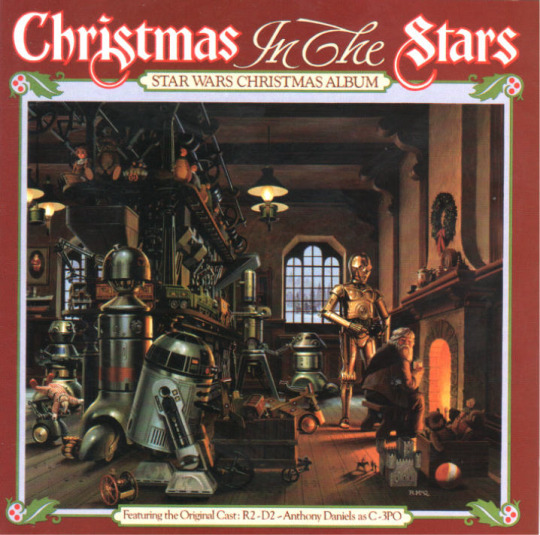
“Christmas in the Stars” (from the “Star Wars” Christmas album of the same name) (1980)
Strange and frightening things began to happen after the tremendous success of the original “Star Wars,” including an astoundingly awful 1978 holiday special. Lessons weren’t learned and two years later producer Meco — hot off his successful disco version of the “Star Wars” theme — produced a Christmas album from a galaxy far, far away. “Christmas in the Stars” is so bad as to become campy fun.

“There Ain’t No Sanity Clause” — The Damned (1980)
English punk band The Damned released this song just in time for the holiday season, but it failed to chart perhaps because no one wanted to have the Santa Claus bubble popped for the youngest yuletide revelers. The lyrics are barely intelligible, but, it is the sing-a-long anthem-like chorus that brings this one home.

"Bollocks To Christmas" — The Business (1981)
English punk bands must have had it out for Christmas in the early ’80s. Elton John's 1973 holiday classic "Step Into Christmas" gets rewritten and reworked into rollicking anti-Christmas anthem that is a welcome antidote for those overdosing on Christmas cheer.
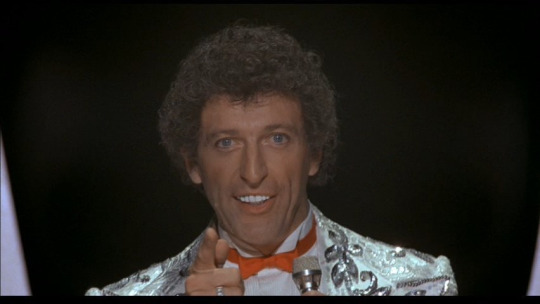
“Christmas in Heaven” — Monty Python (1983)
Monty Python were always known for loopy songs that often pointed out the hypocrisies or the idiosyncrasies of society. In the film “The Meaning of Life,” Graham Chapman sings a caustic song about the consumerism and commercialism that runs rampant during the holiday season that includes lyrics like: “There’s great films on TV/"The Sound of Music” twice an hour/And ‘Jaws’ one, two, and three.“

"Christmas at Ground Zero” - “Weird Al” Yankovic (1986)
Weird Al’s song parodies are usually goofy and innocuous, but Al also has a macabre and twisted sense of humor that occasionally shines through. Written in 1986, “Christmas at Ground Zero” is a biting satire on Cold War paranoia filtered through the sound of a festive holiday tune. Are lines like: “It’s Christmas at ground zero/There’s panic in the crowd/We can dodge debris while we trim the tree/Underneath the mushroom cloud” riotously funny, or simply in bad taste? You be the judge.

“Christmas In Hollis” — Run DMC (1987)
This is a happy hip hop holiday song about Christmas in Queens, N.Y. The song includes such endearingly goofy lyrics as “It was December 24th on Hollis Ave in the dark/When I seen a man chilling with his dog in the park/I approached very slowly with my heart full of fear/Looked at his dog, oh my God, an ill reindeer.”
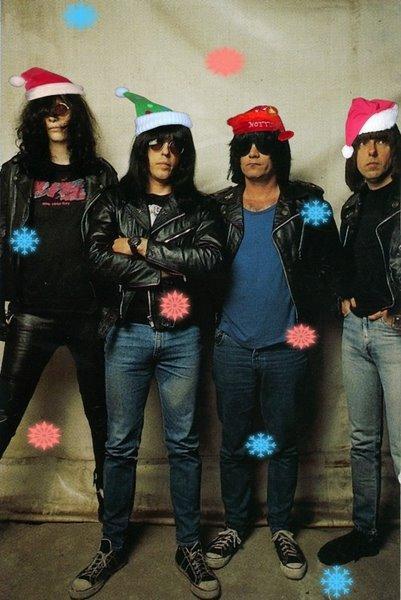
“Merry Christmas (I Don’t Want to Fight Tonight)” — The Ramones (1989)
The Ramones were still kicking around in the late 1980s cranking out three-chord ditties. Surprisingly, one of the best songs from this era is a Christmas song about the tensions of the season and the need for forgiveness.
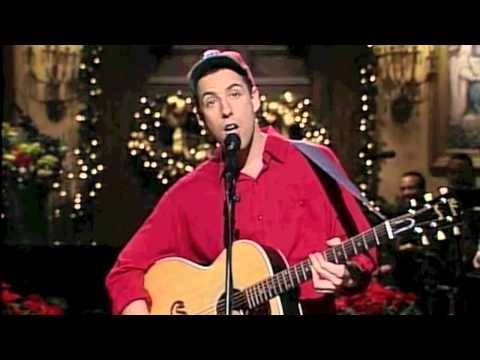
“Santa Song” — Adam Sandler (1993)
Everyone is familiar with Sandler’s “Chanukah Song,” but he actually did a Christmas themed song that pre-dates its by a year. In this one Sandler sings about all the reasons he won’t be getting a visit from Santa. Best line: “Santa don’t like bad boys…especially Jewish ones.”

“12 Days of Yaksmas” — Ren and Stimpy (1993)
There have been numerous parodies of the “12 Days of Christmas,” which is your favorite really comes down to personal preference. As a youth in the 1990s, I’ll always have a special place in my heart for the warped antics of this dog and cat team.

“Burger/Christmas Medley” — Phil Hartman and Sinbad (1995)
Hidden in the closing credits of the film “Houseguest,” a largely forgettable comedy that lives on as cable TV filler, this is an amusing medley of barbecue-themed Christmas songs. Hartman even reprises some of his most famous “Saturday Night Live” impressions, including Frank Sinatra and Bill Clinton.

“Little Drum Machine Boy” — Beck (1996)
“The Little Drummer Boy” gets morphed into an odd dance and rap flavored Chanukah anthem featuring “the holiday Chanukah robot of funk.” Beck is a chameleon-like musician who blends different genres with amazing skill. It is hardly traditional, but certainly original and memorable.

“The Night Santa Went Crazy” — Weird Al Yankovic (1996)
Don’t be fooled by the sweet guitar strumming of the open, this Christmas carol turns humorously sour fast. Yankovic turns his twisted mind on Christmas in the story of the night Santa finally snapped and became a “big, fat, disgruntled yuletide Rambo.”

“I Won’t Be Home for Christmas” — Blink 182 (1997)
Goofball pop/punk rockers wrote this anthem for all those who are driven up the wall by the holiday season. The song features bitter, but funny lyrics like: “It’s time to be nice to the people you can’t stand all year/I’m growing tired of all this Christmas cheer.”

“I Want an Alien for Christmas” — Fountains of Wayne (1997)
Years before Fountains of Wayne recorded its breakup out “Stacy’s Mom,” the band recorded this cheerfully loopy song that seems to be a modern riff on “I Want a Hippopotamus for Christmas.” It is hard not to smile at such lyrics as “I want a little green guy/About three feet high/With seventeen eyes.”

“O Holy Night” — Eric Cartman (1999)
“South Park” dedicated a whole episode to satirizing holiday music back in 1999. This is one of the tamer songs from the episode with the spoiled Cartman butchering the holiday classic to hilarious effect.
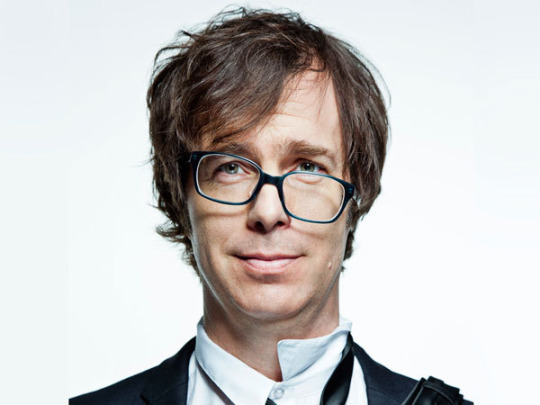
“Lonely Christmas Eve” - Ben Folds (2000)
Faith Hill’s “Where Are You, Christmas?” got all the attention, but this song is probably the best thing to come out of Ron Howard’s bloated film version of “How the Grinch Stole Christmas.” Written from the perspective of the Grinch, the tongue-in-cheek piano-man perfectly captures the Dr Seuss tone in a way the movie it appeared in never did while also adding his own quirky sense of humor.

“Bizarre Christmas Incident” — Ben Folds (2002)
Folds hasn’t done a Christmas album, but based on this and the above song, it would be one of the funniest ones ever recorded. This aptly named song unfolds a dark tale of a man encountering Santa in the night. The song answer the question of what would happen if Santa got stuck in the chimney. Needless to say, it doesn’t end pretty. Best enjoyed by those who like their humor black.

“Jingle Bells” - Brian Setzer Orchestra (2002)
Setzer reinterprets “Jingle Bells” with his familiar swinging rockabilly stamp. It is a hoot to hear him change the “one horse open sleigh” to a “57 Chevrolet.”

“Elf’s Lament” — Barenaked Ladies (2004)
On “Barenaked for the Holidays” the Ladies presented a collection of Christmas favorite as well as original songs featuring their quirky sense of humor. On this song an elf complains “I make toys, but I’ve got aspirations.” Bonus: this song features vocals from Michael Bublé.
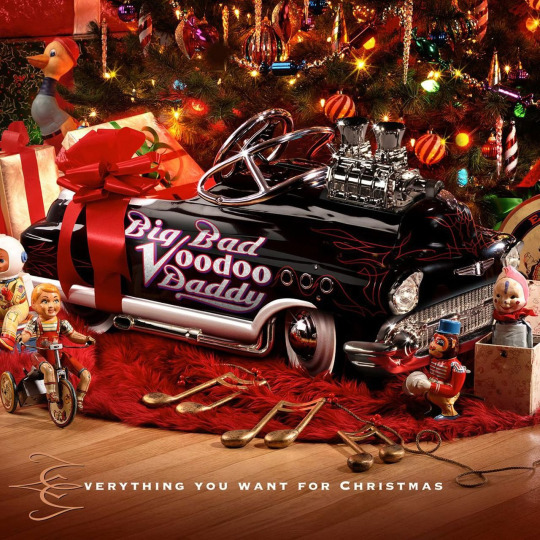
“Mr. Heat Miser” — Big Bad Voodoo Daddy (2004)
The song first appeared in the 1974 stop-motion animation special “The Year Without Santa.” Thirty years later the swing revival group Big Bad Voodoo Daddy recorded the definitive version of the song for their holiday album “Everything You Want for Christmas.”
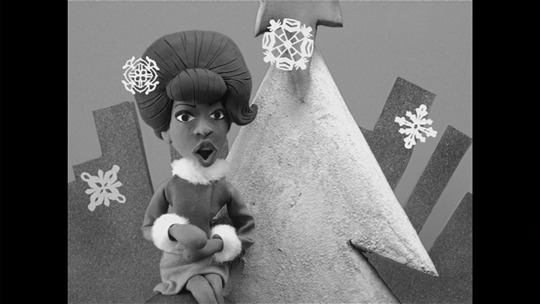
“Christmastime for the Jews” — Darlene Love (2005)
Robert Smigel contributed a series of animated shorts to “Saturday Night Live” called “TV Funhouse.” This was one of the best with soul singer Love providing the vocals to a song that describes what Jews do while gentiles “stay at home and party with their goyish family.”
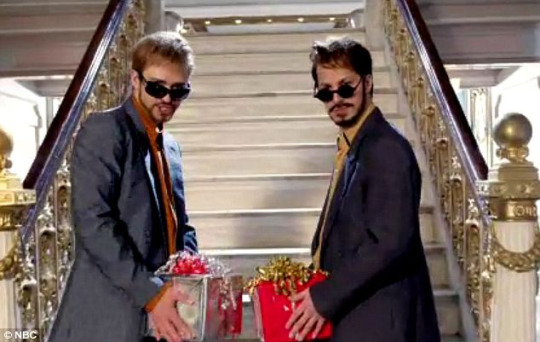
“Dick in a Box” - Lonely Island and Justin Timberlake (2006)
When it first aired on “Saturday Night Live” Dec. 16, 2006, it was clear it would become an instant classic. A parody of ‘90s R&B was an ideal fit for Timberlake, but when you got to the punchline, it was the last thing you expected.

“I’m Getting Nuttin’ for Christmas” — Relient K (2007)
Christian punk/pop band Relient K’s do a fast, rocking cover of the novelty song “I’m Getting Nuttin’ for Christmas.” The snarling punk attitude and crunching guitars suit lyrics like “I broke my bat on Johnny’s head/Somebody snitched on me” quite well.
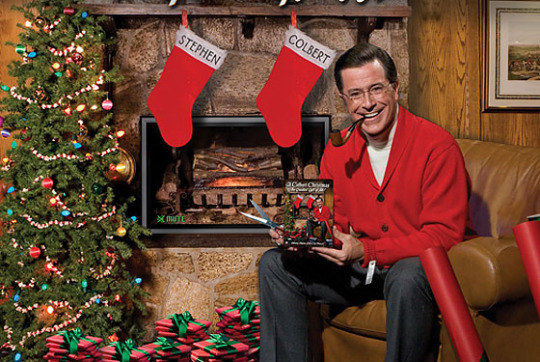
“Another Christmas Song” — Stephen Colbert (2008)
Stephen Colbert did a hilarious parody of holiday specials in 2008. The special’s songs either subverted preexisting songs or, in this case, are something completely new. Lyrics like “The tree is frozen, the winter’s bright/Who’d have thought the wise men look so white” are made all the funnier by Colbert’s authentic crooning.
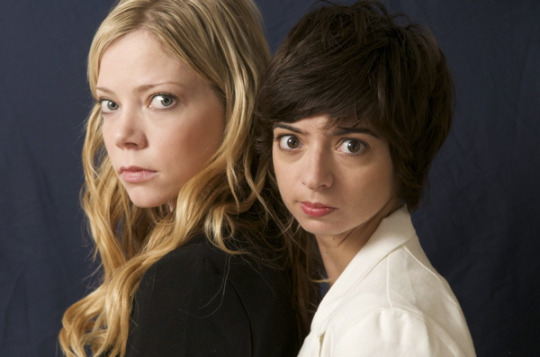
“Present Face” — Garfunkel and Oates (2008)
This female comedy-folk duo combines disarming charming and simple hooks with goofy and/or raunchy lyrics. In this case the duo leans toward the silly side as they sing about the all too familiar face people make when they get a present they don’t like.
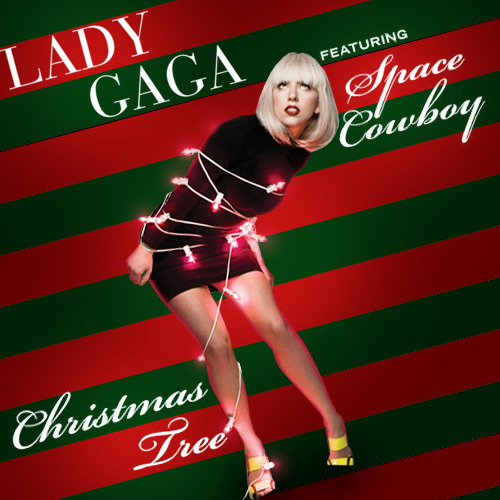
“Christmas Tree” — Lady Gaga featuring Space Cowboy (2008)
Leave it to Lady Gaga, the reigning pop queen of weirdness, to co-write a Christmas song filled with dance beats and dripping with sexual innuendos. It is most definitely not family friendly, but the audacity is admirable.

“Merry Something to You” — Devo (2009)
Yep, Devo, those quirky new wavers recorded a song for the holidays. Blending cheery, generic holiday music with the synthesizers and drum beats they are known for, the band creates an infectious little ditty. Devo often used their songs to satirize society and that’s most definitely the case here as they proclaim: “Believe what you want nothing’s really true.”

“Oh Shit, It’s Christmastime!” — Mad Tea Party (2009)
This uke-abilly band vents their frustration for Christmas in this infectious two-minute ditty. The cynical lyrics include sentiments that anyone can relate to, if only fleetingly: “It’s Christmas, forgot about the pagans and Jews/It’s Christmas and it makes me blue.”

“Christmas Night of the Living Dead” — MxPx (2009)
It was perhaps inevitable that there would be a zombie-themed Christmas song. Punk rockers MxPx present this bloody tale of Christmas carnage featuring the chorus: “Christmas night of the living dead/My face is green and the snow is red.”
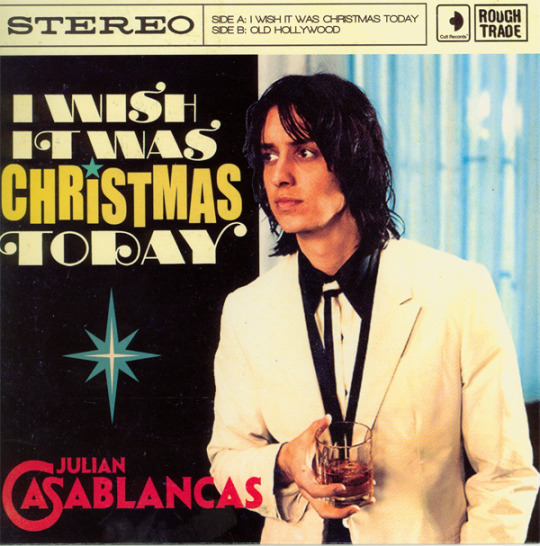
“I Wish It Was Christmas Today” — Julian Casablancas (2009)
Originally a goofy tune performed on “Saturday Night Live” by Horatio Sanz, Jimmy Fallon, Chris Kattan and Tracy Morgan, Casablancas, the lead singer of The Strokes, fleshes it out into a full-fledged rocking Christmas song. The added production value manages to enhance the simple charms of the skit rather than undermine it.

“All I Need Is Love” — CeeLo Green Feat. The Muppets (2012)
The Muppet’s classic “Mahna Mahna” becomes the spine for this joyous collaboration with CeeLo Green, in which Green proclaims all he needs is love for Christmas. Slick modern pop production combined with the silliness of the Muppets make this hard to resist.

"The Season's Upon Us" — Dropkick Murphys (2012)
Boston’s beloved Celtic punk band offers up their take on the holiday season. The song gleefully embraces familial dysfunction and chaos with such lyrics like “My sisters are wack jobs, I wish I had none/Their husbands are losers and so are their sons.”
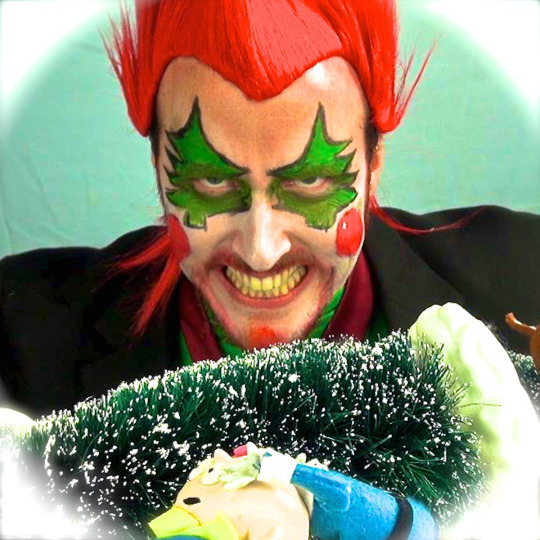
“I Fucking Love Christmas” — Rob Scallon and Doug Walker (2014)
Doug Walker has been providing irreverent movie reviews on the Internet as the Nostalgic Critic since 2007. He loves Christmas. He really loves Christmas, which he makes abundantly clear in this gloriously over-the-top song. The hilariously explicit lyrics definitely require parental discretion.

“Sump’n Claus” — Kenan Thompson (2014)
“Saturday Night Live” delivers again with yet another hilarious satire of Christmas. Here Kenan Thompson plays Sump’n Claus, who, unlike Santa Claus and his judgmental list, declares “everybody’s gettin’ sump’n” and that something is cold hard cash in a white envelope. Just don’t ask where it came from.

“Text Me Merry Christmas” — Straight No Chaser and Kristen Bell (2014)
A cappella group Straight No Chaser is joined by actress Bell for a perfect mix of sincerity and satire in looking at love and the holiday season in the modern age. Playful lyrics like “I don’t care if you spell things right/I just want to hear from you tonight/Stroke those keys with your delicate touch/And type those little words that mean so much” are delivered with a charming sweetness.

“Santa’s Coming For Us” — Sia (2017)
Every year, a new crop of artists release Christmas-themed albums. Typically, they are filled with covers of the same holiday standards with a couple originals thrown. Refreshingly, Sia’s “Everyday is Christmas” features all new songs that perfectly blend Sia’s idiosyncratic pop sensibilities with the upbeat sounds of the season. Lead single “Santa’s Coming For Us” is effervescent and catchy in way that never becomes insufferable.
#text me merry christmas#straight no chaser#doug walker#the nostalgia critic#I Wish It was Christmas today#Saturday Night Live#MxPx#Devo#Christmas Tree#lady gaga#garfunkel and oates#Christmas#Merry Christmas#the barenaked ladies#michael buble#Ben Folds#Weird Al#William Shatner#Kristen Bell#Blink 182#julian casablancas#santa claus#Father Christmas#Justin Timberlake#lonely island#The Kinks#Beck#run dmc#Sia#kenan thompson
1 note
·
View note
Text
I was tagged!
By @crocodile-government ! Rules: Answer, add a new one to the end (optional), tag others!
Coke or Pepsi: I don’t drink either myself! But with Pêpsi’s recent screw-up…
Disney or Dreamworks: Gotta go dreamworks!
Coffee or Tea: I prefer tea! Especially caffeine-free, or I get too jittery!
Books or Movies: Books! I’m not a very fast reader and it takes me a long time to get through a book cuz it’s hard to focus, but I love reading stories!
Windows or Mac: Those are cømputér’s, right?
DC or Marvel: DC! I read a lot of their comic books and their heroes give me a lot of motivation!
Xbox or Playstation: I don’t game much myself, but I know Pixel’s argued for “Xbox”
Dragon Age or Mass Effect: I like dragons! But in not sure I…entirely understand the question?
Night Owl or Early Riser: Definitely an early riser! I like to get up early so I can watch the sunrise and sometimes I can even hear frogs!
Cards or Chess: I don’t really have the attention span for chess, but I’ve been okay at cards. Then again, I’ve only played against Robbie, and he doesn’t have a very good poker face!
Chocolate or Vanilla: Chocolate! Although if strawberry was an option, I’d pick that.
Paragon or Renegade: Ah, see, I don’t know what that is!
Star Wars or Star Trek: I’ve heard of Star Wars! *nyoom, nyoom* I AM YOUR FATHER
One episode per week or binge watch: I prefer to watch a little at a time so my eyes don’t start hurting and so I can keep on my regular fitness and eating schedule!
Gandalf or Obi Wan: Again, I’ve heard of Obi-Juan and he seems cool! Stephanie and Pixel said he’s very powerful, but a force of good! I respect that.
Heroes or Villains: Well, heroes, of course, but…a lot of villains I know aren’t bad people at all! I respect villains and mischief makers a lot more than just plain bullies.
John Williams or Hans Zimmer: Ziggy showed me some of John William’s old movies! That kid loves westerns, and he knows a lot of John’s quotes! Are you feeling lucky?
Disneyland or Six Flags: I’ve never been but I’ve heard all the kids talking about how much fun both are! I’d love to go to an amusement park someday.
Forest or Sea: Forest! The sea where I live is very cold and not much fun, although it is very pretty.
Flying or Reading Minds: Flying! I can get anywhere I need to quickly, although I’d probably still run most places - plus reading minds seems kinda mean.
Harry Potter or Lord of the Rings: I know Stingy and Stephanie and Trixie love Harry Potter! They want me to dress up as one of the characters some day, but they can’t decide which, and I don’t know any anyway, but it seems like a very fun universe!
You’re banished to a deserted island, which fictional character would you choose to take with you: Definitely Tomoe Gozen! I like to read mythology and history books and she was a legendary samurai! She’d definitely hold her own.
Train or Cruise Ship: Train! You get to enjoy more scenery that way.
Brian Cox or Neil DeGrasse Tyson: I don’t know Brian but I respect everyone that studies space from afar! The stars are amazing
Art Museum or Science Museum: Both!
Irish Pub or Night Club: I don’t drink, but I like dancing, so I guess night club?
Aang or Korra: I don’t know them!
Swimming in a pool or lake: I prefer pools! Even though lakes are nice and you get to an see amazing new landscape, the germiness always bothers me.
Classical Music or Classical Literature: Literature!
Digital or Paper Books: Paper, the digital ones hurt my eyes whenever Trixie or Pixel offer to lend me their e readers.
Rainy Days or Sunny Days: Sunny! Perfect for outside fun.
Fantasy or Science Fiction: I prefer science fiction, but my love of mythology often has me stray into the fantastical. Besides, I mean, I’m an elf myself, and a lot of fantasy depictions of elves are kinda silly from my perspective.
Poetry or prose: Both 💙💙
Music or Lyrics: I love music with a good danceable beat, words or no!
Kissing or Cuddling: Cuddles are nice and can be platonic or romantic! Either way it’s really comforting and welcoming.
Dancing or Movies for Date Night: Dancing!
Sea or Space: Gotta go space, like I said I’ve always thought the stars are completely mezmerizing
Netflix or YouTube: YouTube! All the animal videos Pixel shows me warm my heart.
Plushies or Pets: I love animals, but I prefer to stick to plushies myself because I have a very busy schedule and worry I wouldn’t have time to take good care of a pet!
Pizza or Nachos: Pizza! I prefer it thin-crust with lots of vegetables, but it’s delicious however.
If you could speak to one person from history and tell them everything you know about the modern day, who would it be: Maybe Vincent Van Gogh? Robbie and I went to see some of his art one time and it was beautiful but I hear he was very sad.
If you could become fluent in a language right now, what would you pick: Honestly, English, I still mess up a lot of phrases and get lost when people talk too fast. Although it would be nice to know Mandarin Chinese to keep up with Trixie!
Favorite Mythical Creature: Maybe dragons? They’re Very Cøól!
Magic or Technology: Both! I use technology to help me with my work, but I see a lot of magic in use around town and I wish I knew who was responsible for it.
Princess or Dragon: Dragon, although all the princesses I know are vęry nice
Traditional art or digital art: Both!
If you could only eat one thing for the rest of your life (ignoring nutrition necessities of course) what would it be?
I tag @official-robbie-rotten , @mememachinerobbie, @sportarobbie-hell!
4 notes
·
View notes
Text
Digital Marketing Campaigns: Winter 2018 Edition
It feels like the time has come for the Distilled Winter 2018 creative content round-up, which must mean – spring is on its way! So, without further ado…
Data Visualisations
A world of languages - Alberto Lucas Lopez
At school, the languages lessons offered to me were either French or German. Some more forward-thinking schools had Spanish in their curriculum. This graphic, by freelance data visualiser Alberto Lucas Lopez, puts into perspective how much more of the world is opened up to you if you know Spanish. If you want to be able to communicate with even more of the world population, then Chinese or Hindi would work in your favour. The presentation here, with the data shown in a circle, with the countries that speak these languages included by area based on population feels novel too, especially if you stretch your imagination to think of it as a globe.
The world through the eyes of the US - The Pudding
The Pudding has created some of my favourite data visualisations over the years. Originally their content focused on music, but now their scope has broadened. This chart looks at which countries have been talked about most in the New York Times each month since 1900. A grid of flags shows the beginning of the first world war, as mentions of Germany flood the headlines. In 1965, Vietnamese flags dominated, and from 2003, Iraq. The present day leans mainly towards China, followed by President Trump and the trade war.
Fiction Made Reality
7 Floor Plans of famous hotel rooms in film - Expedia
Ever wanted to step inside the hotel room you have seen in a movie? Expedia created Sims-like architectural sketches of the floor plans of seven famous hotel rooms from films, and in most cases offered a way of booking that very same room in real life. The attention to detail here is what makes it so cool – the tiger strolling casually through the apartment in The Hangover, down to the cutlery that was used on the tables – it’s making those magical scenes in your favourite films a livable reality.
Product Promotion
Free rides during Black History Month - Lyft
Lyft gave users one free ride during Black History Month to Black history museums, memorials, and relevant cultural sites. Promo codes for participating cities were given out in a blog post, along with possible destinations. Calling out the contributions of black women and men throughout history makes Lyft come across as forward-thinking and timely. It’s my guess that supporting communities like this improves brand sentiment with lasting effects.
Name a cockroach this Valentine's Day - Hemsley Conservation Centre
Enough brands focus on the lovey-dovey aspect of Valentine’s Day during this annual celebration of romance; Hemsley Conservation Centre’s campaign however stood out from the crowd by putting in place a stunt that helps you get back at your ex. Not that it is healthy to dwell on negative things in the past, but this tongue-in-cheek cockroach-naming service certainly makes revenge that little bit more sweeter, and all at the tiny price of £1.50.
Advertising
Gillette - The Best Men Can Be
In January, Gillette launched a new ad changing its strapline from ‘the best a man can get’ to ‘the best men can be’. Piggybacking off the #metoo movement, in this ad, Gillette challenge men to hold themselves accountable and to stop bullying, violence and sexual harassment. The ad received mixed opinions, I am in agreement with Bernice King (Martin Luther King’s daughter) who said, ‘This commercial isn’t anti-male. It’s pro-humanity’. Changing habits and mindsets is one of the hardest things to do, and I feel this was a courageous topic for Gillette to comment on.
Tools
Hey from the future - Ryder Damen
Advice from those older than us has been a successful format for us recently. For A Place For Mom, a senior care referral service in the US, we analysed over 100 news articles which gave advice from people over 100 on how to have a happy, healthy, and – most importantly – long life. Similar to this, Ryder Damen created a piece, offering advice to all ages from those older than them. At age 33, I quite agreed with mine.
Currency Converter 1270 - 2017 - The National Archives
Looking back as well as looking forward can often be a good basis for an idea. The National Archives have used their data to calculate modern day equivalents in the values of wool, horses, wheat and other tradable products from a year in the past of your choosing, based on the value of today’s money. For example £100 of today’s money would have brought me three horses in the 1920’s when my grandparents were born. Comparing today’s money to horses feels silly, as not that many people want to buy a horse, but it works as a concrete comparison to show how value has changed over the years.
Games
Praise or haze
In a world where it seems we’re often powerless to make a change with our opinions, especially those towards controversial leaders, something, anything we can do to get back at them even in a silly way to their often ridiculous statements feels empowering. This silly game allows you to ‘praise’ or ‘haze’ Donald Trump for things he has said. My personal favourite is when a large waterfall of wee is poured onto his head…I didn’t bother pressing the praise button.
Photo Stories
Dollar Street - Gap Minder
Gap Minder create free teaching materials to dismantle misconceptions and promote a fact-based worldview on cultural differences. The money other people is always a cause for intrigue, as we inevitably compare this to our own wealth. This piece, in particular, looks at the differences in monthly household earnings, and also even allows you to take a deeper dive into what basics, like fetching water, a refrigerator or cutlery look like in these countries.
At Distilled we have made similar stories ourselves with much success. In the video below Vicke and I talk about how you can reach people from all around the world using freelancer websites like UpWork to gather unique images and content.
What content have you enjoyed lately? Let us know in the comments.
from Marketing https://www.distilled.net/resources/digital-marketing-campaigns-winter-2018-edition/
via http://www.rssmix.com/
0 notes
Text
Race
The Barber Shop Show
wbez.org/shows/the-barbershop-show
From WBEZ Chicago
Caitlin's rating: 2/5
"Coming to you live from Carter's Barbershop in Chicago's North Lawndale neighborhood, The Barber Shop Show brings you a weekly dose of real talk, straight from the shop floor. No punches are pulled and no topic is considered off-topic." -WBEZ website
I think if I lived in Chicago or knew it better, I would have a better appreciation for this podcast. Maybe that will change!
Culture Kings
culturekingspod.com
From How Stuff Works
Caitlin's rating: 5/5
"Culture Kings is a show for the culture, by the culture and about the culture. Who's the culture? Well, black people, but also just people. Each week, comedians Jacquis Neal, Edgar Momplaisir and Carl Tart dive into topics ranging from sports and music to what's the best way to eat a taco? (Head straight up or askew) WE DO IT FOR THE CULTURE!" -Culture Kings website
These guys are so funny! Most of the things they talk about are things that I've never experienced or even necessarily considered, and it's prompted a lot of interesting conversations with my friends that are POC. The guys are super interactive on Twitter, which is so much fun, and for as silly as they act, they really are smart. I told them that I trying my best to be a woke white person. Edgar responded and said "I’ll say this. Don’t put any pressure on yourself to be “woke”. Cause when you 'fail'—you won’t learn from it. You’ll just become bitter. I’d say reframe it and say I want to be open. I want to learn. Cause we’re all flawed and learning. That’s the best we can do :)" There are only a few episodes out right now, so go listen to all of them. Queen of the Week is my favorite segment mostly because I love hearing Carl sing it every time.
Ethnically Ambiguous
ethnicallyambiguouspod.com
From How Stuff Works
Caitlin's rating: 3/5
"Anna and Shereen want you to know what it's like to be a modern Middle Easterner living in America. They take their ridiculous perspective on life and dive deep-ish into current US politics that relate to being brown in this country, tackle politics of the Middle East, break down Middle Eastern stereotypes, and take on other brown folk’s personal experiences in relation to their own." -Ethnically Ambiguous website
This one is hit or miss for me. Generally the information is really interesting, but there have been times when I question the validity of what the women are saying. That's nothing against them; it just goes to show that as an audience, you really need to double check everything you hear or see in the media now. I do find Anna and Shereen to be funny, and I especially like their childhood anecdotes. Recommendations:
We Are Alaa Khaled (1:36:12) - The women interview Alaa Khaled, an actor who is also DJ Khaled's brother. His dad seems hilarious.
We Are Aladdin (59:14) - The women talk about how it's problematic that an Indian is playing Jasmine in the live-action Aladdin movie and the first same-sex Muslim marriage.
Yo, Is This Racist?
earwolf.com/show/yo-is-this-racist
From Earwolf
Caitlin's rating: 3/5
"Every Wednesday, Ti and his guests answer questions from fan-submitted voicemails and emails about whether or not something is, in fact, racist." -Earwolf website
I like this podcast, but it's long as hell. I know I've already listed several podcasts that have episodes over an hour long, but this one just feels long. They do have the guys from Culture Kings on the show as guests, so that's cool.
0 notes
Text
Digital Marketing Campaigns: Winter 2018 Edition
It feels like the time has come for the Distilled Winter 2018 creative content round-up, which must mean – spring is on its way! So, without further ado…
Data Visualisations
A world of languages - Alberto Lucas Lopez
At school, the languages lessons offered to me were either French or German. Some more forward-thinking schools had Spanish in their curriculum. This graphic, by freelance data visualiser Alberto Lucas Lopez, puts into perspective how much more of the world is opened up to you if you know Spanish. If you want to be able to communicate with even more of the world population, then Chinese or Hindi would work in your favour. The presentation here, with the data shown in a circle, with the countries that speak these languages included by area based on population feels novel too, especially if you stretch your imagination to think of it as a globe.
The world through the eyes of the US - The Pudding
The Pudding has created some of my favourite data visualisations over the years. Originally their content focused on music, but now their scope has broadened. This chart looks at which countries have been talked about most in the New York Times each month since 1900. A grid of flags shows the beginning of the first world war, as mentions of Germany flood the headlines. In 1965, Vietnamese flags dominated, and from 2003, Iraq. The present day leans mainly towards China, followed by President Trump and the trade war.
Fiction Made Reality
7 Floor Plans of famous hotel rooms in film - Expedia
Ever wanted to step inside the hotel room you have seen in a movie? Expedia created Sims-like architectural sketches of the floor plans of seven famous hotel rooms from films, and in most cases offered a way of booking that very same room in real life. The attention to detail here is what makes it so cool – the tiger strolling casually through the apartment in The Hangover, down to the cutlery that was used on the tables – it’s making those magical scenes in your favourite films a livable reality.
Product Promotion
Free rides during Black History Month - Lyft
Lyft gave users one free ride during Black History Month to Black history museums, memorials, and relevant cultural sites. Promo codes for participating cities were given out in a blog post, along with possible destinations. Calling out the contributions of black women and men throughout history makes Lyft come across as forward-thinking and timely. It’s my guess that supporting communities like this improves brand sentiment with lasting effects.
Name a cockroach this Valentine's Day - Hemsley Conservation Centre
Enough brands focus on the lovey-dovey aspect of Valentine’s Day during this annual celebration of romance; Hemsley Conservation Centre’s campaign however stood out from the crowd by putting in place a stunt that helps you get back at your ex. Not that it is healthy to dwell on negative things in the past, but this tongue-in-cheek cockroach-naming service certainly makes revenge that little bit more sweeter, and all at the tiny price of £1.50.
Advertising
Gillette - The Best Men Can Be
In January, Gillette launched a new ad changing its strapline from ‘the best a man can get’ to ‘the best men can be’. Piggybacking off the #metoo movement, in this ad, Gillette challenge men to hold themselves accountable and to stop bullying, violence and sexual harassment. The ad received mixed opinions, I am in agreement with Bernice King (Martin Luther King’s daughter) who said, ‘This commercial isn’t anti-male. It’s pro-humanity’. Changing habits and mindsets is one of the hardest things to do, and I feel this was a courageous topic for Gillette to comment on.
Tools
Hey from the future - Ryder Damen
Advice from those older than us has been a successful format for us recently. For A Place For Mom, a senior care referral service in the US, we analysed over 100 news articles which gave advice from people over 100 on how to have a happy, healthy, and – most importantly – long life. Similar to this, Ryder Damen created a piece, offering advice to all ages from those older than them. At age 33, I quite agreed with mine.
Currency Converter 1270 - 2017 - The National Archives
Looking back as well as looking forward can often be a good basis for an idea. The National Archives have used their data to calculate modern day equivalents in the values of wool, horses, wheat and other tradable products from a year in the past of your choosing, based on the value of today’s money. For example £100 of today’s money would have brought me three horses in the 1920’s when my grandparents were born. Comparing today’s money to horses feels silly, as not that many people want to buy a horse, but it works as a concrete comparison to show how value has changed over the years.
Games
Praise or haze
In a world where it seems we’re often powerless to make a change with our opinions, especially those towards controversial leaders, something, anything we can do to get back at them even in a silly way to their often ridiculous statements feels empowering. This silly game allows you to ‘praise’ or ‘haze’ Donald Trump for things he has said. My personal favourite is when a large waterfall of wee is poured onto his head…I didn’t bother pressing the praise button.
Photo Stories
Dollar Street - Gap Minder
Gap Minder create free teaching materials to dismantle misconceptions and promote a fact-based worldview on cultural differences. The money other people is always a cause for intrigue, as we inevitably compare this to our own wealth. This piece, in particular, looks at the differences in monthly household earnings, and also even allows you to take a deeper dive into what basics, like fetching water, a refrigerator or cutlery look like in these countries.
At Distilled we have made similar stories ourselves with much success. In the video below Vicke and I talk about how you can reach people from all around the world using freelancer websites like UpWork to gather unique images and content.
What content have you enjoyed lately? Let us know in the comments.
from Marketing https://www.distilled.net/resources/digital-marketing-campaigns-winter-2018-edition/
via http://www.rssmix.com/
0 notes